Sixteenth Century Quotes & Sayings
Enjoy reading and share 100 famous quotes about Sixteenth Century with everyone.
Top Sixteenth Century Quotes
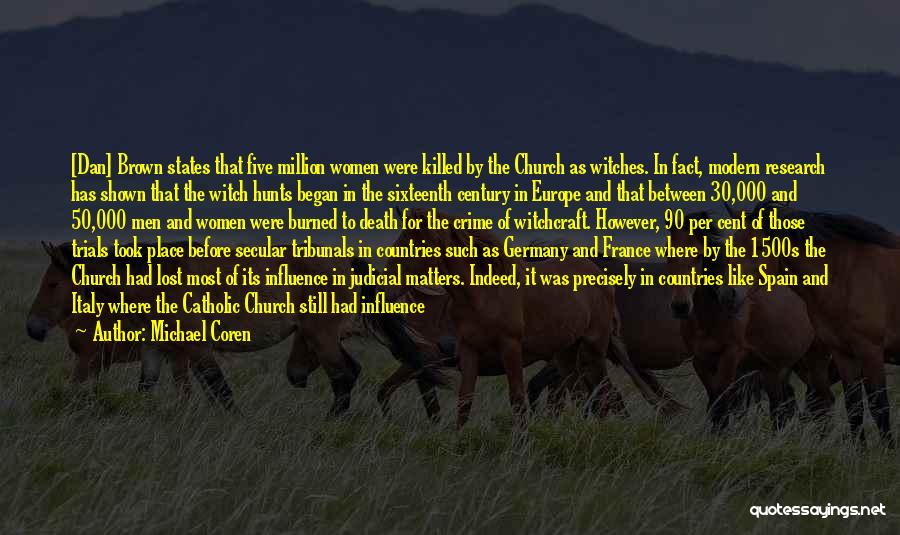
[Dan] Brown states that five million women were killed by the Church as witches. In fact, modern research has shown that the witch hunts began in the sixteenth century in Europe and that between 30,000 and 50,000 men and women were burned to death for the crime of witchcraft. However, 90 per cent of those trials took place before secular tribunals in countries such as Germany and France where by the 1500s the Church had lost most of its influence in judicial matters. Indeed, it was precisely in countries like Spain and Italy where the Catholic Church still had influence that there were almost no witchcraft trials. — Michael Coren
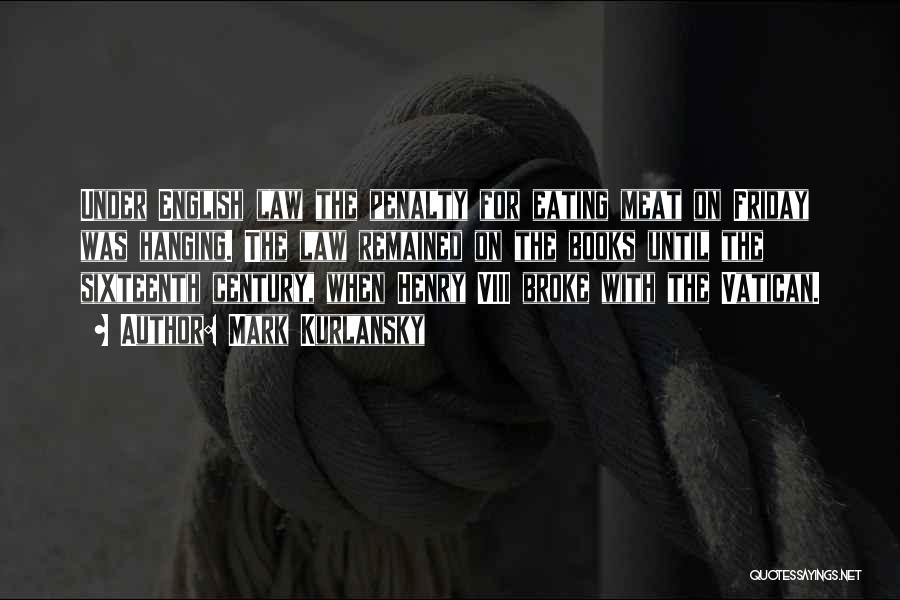
Under English law the penalty for eating meat on Friday was hanging. The law remained on the books until the sixteenth century, when Henry VIII broke with the Vatican. — Mark Kurlansky
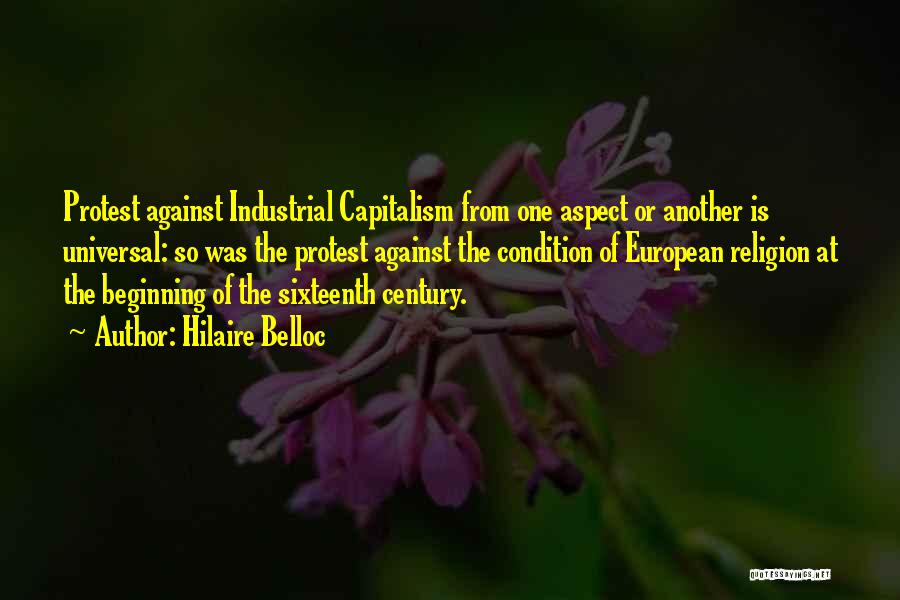
Protest against Industrial Capitalism from one aspect or another is universal: so was the protest against the condition of European religion at the beginning of the sixteenth century. — Hilaire Belloc
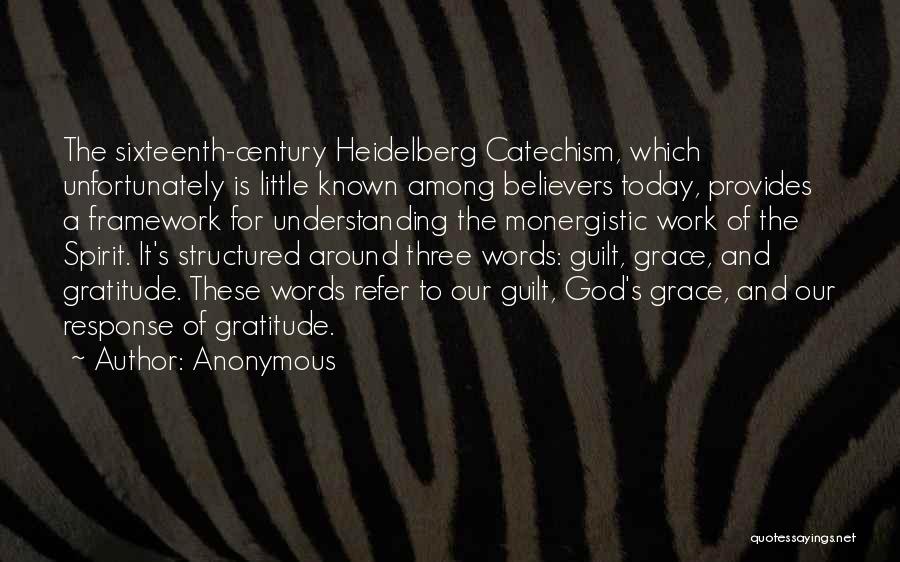
The sixteenth-century Heidelberg Catechism, which unfortunately is little known among believers today, provides a framework for understanding the monergistic work of the Spirit. It's structured around three words: guilt, grace, and gratitude. These words refer to our guilt, God's grace, and our response of gratitude. — Anonymous
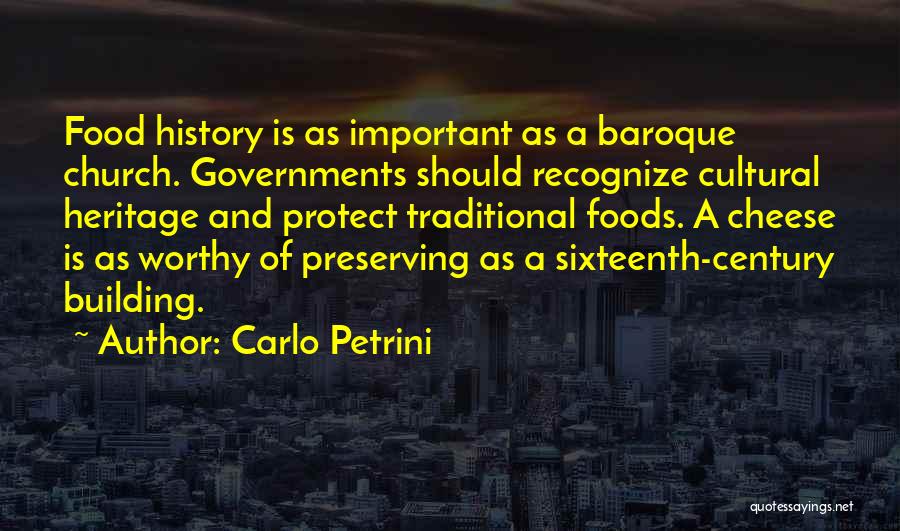
Food history is as important as a baroque church. Governments should recognize cultural heritage and protect traditional foods. A cheese is as worthy of preserving as a sixteenth-century building. — Carlo Petrini

One of the towering figures of the age of Enlightenment was Johann Wolfgang von Goethe, known to this day in German-speaking lands as the poet of princes and prince of poets. Unlike Voltaire, he openly practiced esoteric disciplines, particularly alchemy. He wrote a famous verse about the Cathars, which translated says: "There were those who knew the Father. What became of them? Oh, they took them and burned them!" Goethe's chief work, of course, is his Faust. As noted in chapter 8, the figure of Faust was inspired by the image of the early Gnostic teacher Simon Magus, one of whose honorific names was Faustus. While in Christopher Marlowe's sixteenth-century play, — Stephan A. Hoeller
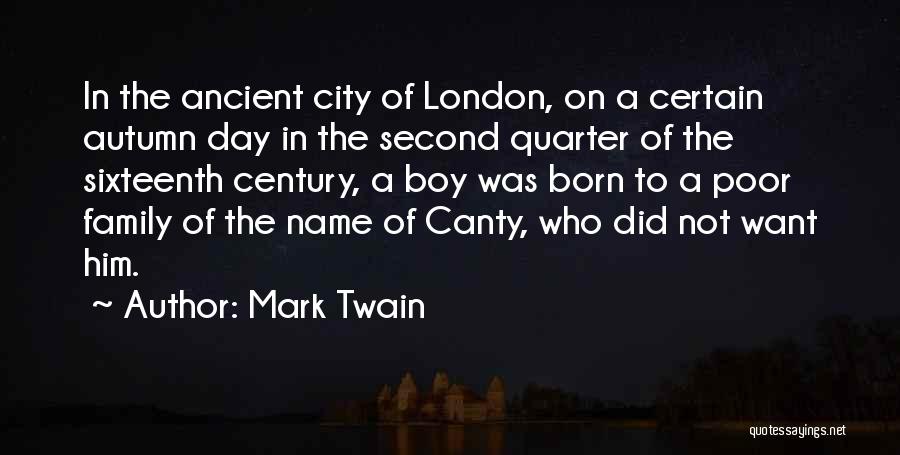
In the ancient city of London, on a certain autumn day in the second quarter of the sixteenth century, a boy was born to a poor family of the name of Canty, who did not want him. — Mark Twain
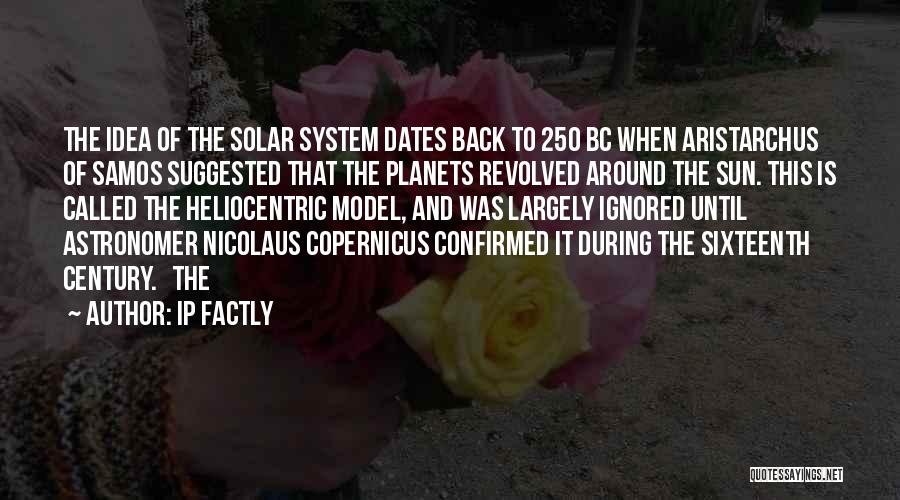
The idea of the Solar System dates back to 250 BC when Aristarchus of Samos suggested that the planets revolved around the Sun. This is called the heliocentric model, and was largely ignored until astronomer Nicolaus Copernicus confirmed it during the sixteenth century. The — IP Factly
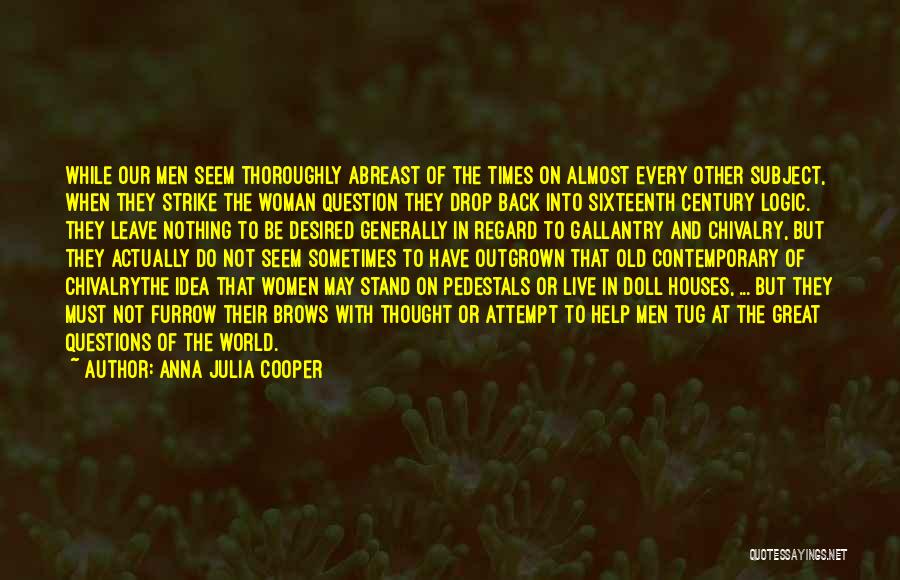
While our men seem thoroughly abreast of the times on almost every other subject, when they strike the woman question they drop back into sixteenth century logic. They leave nothing to be desired generally in regard to gallantry and chivalry, but they actually do not seem sometimes to have outgrown that old contemporary of chivalry
the idea that women may stand on pedestals or live in doll houses, ... but they must not furrow their brows with thought or attempt to help men tug at the great questions of the world. — Anna Julia Cooper

After landing his invasion forces on the shores of some country, the sixteenth-century Spanish conquistador Hernan Cortes would immediately burn his own boats. He was sending his army a message: "We can't turn back. Either we succeed here or we die here." Excuses were not an option. — Lou Holtz
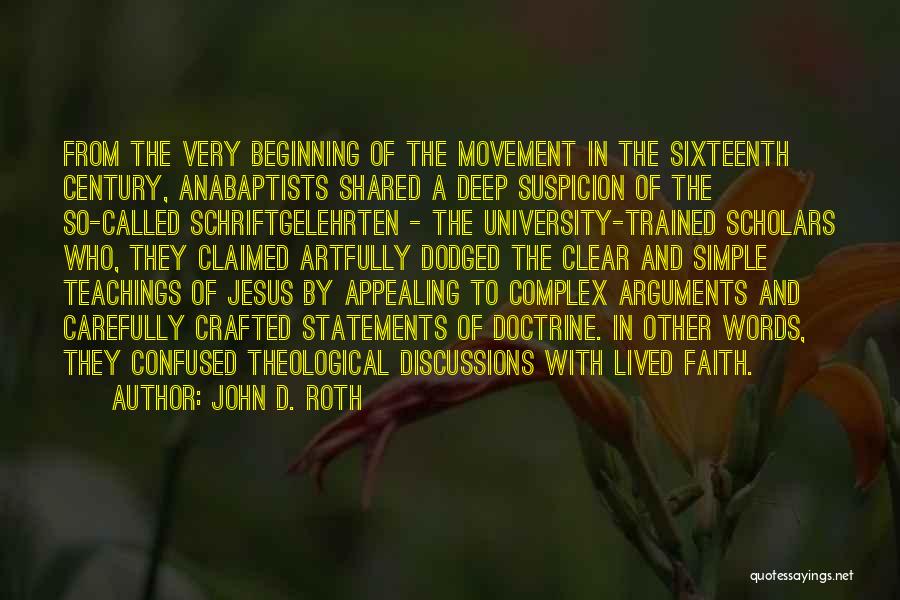
From the very beginning of the movement in the sixteenth century, Anabaptists shared a deep suspicion of the so-called Schriftgelehrten - the university-trained scholars who, they claimed artfully dodged the clear and simple teachings of Jesus by appealing to complex arguments and carefully crafted statements of doctrine. In other words, they confused theological discussions with lived faith. — John D. Roth
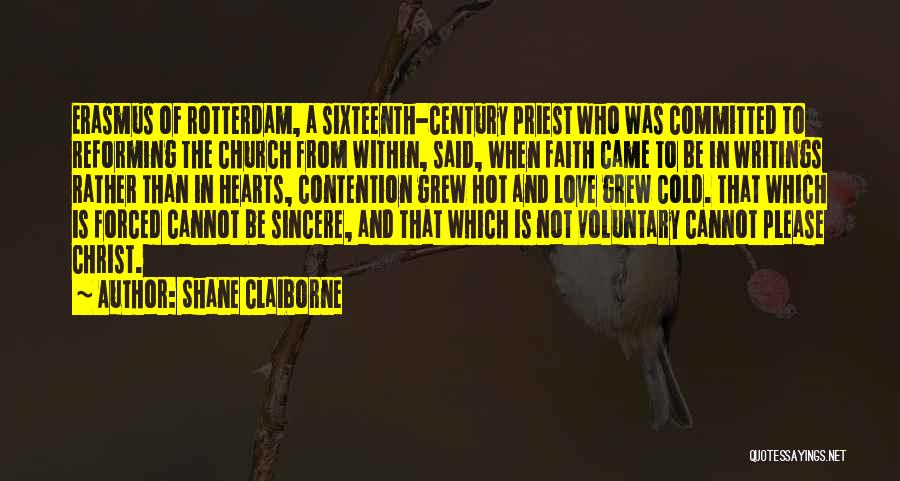
Erasmus of Rotterdam, a sixteenth-century priest who was committed to reforming the church from within, said, When faith came to be in writings rather than in hearts, contention grew hot and love grew cold. That which is forced cannot be sincere, and that which is not voluntary cannot please Christ. — Shane Claiborne
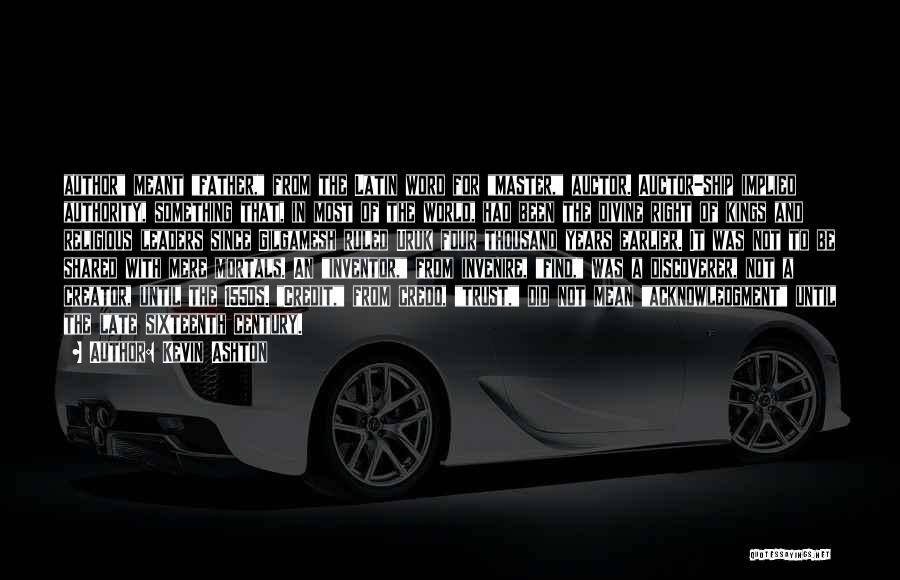
author" meant "father," from the Latin word for "master," auctor. Auctor-ship implied authority, something that, in most of the world, had been the divine right of kings and religious leaders since Gilgamesh ruled Uruk four thousand years earlier. It was not to be shared with mere mortals. An "inventor," from invenire, "find," was a discoverer, not a creator, until the 1550s. "Credit," from credo, "trust," did not mean "acknowledgment" until the late sixteenth century. — Kevin Ashton
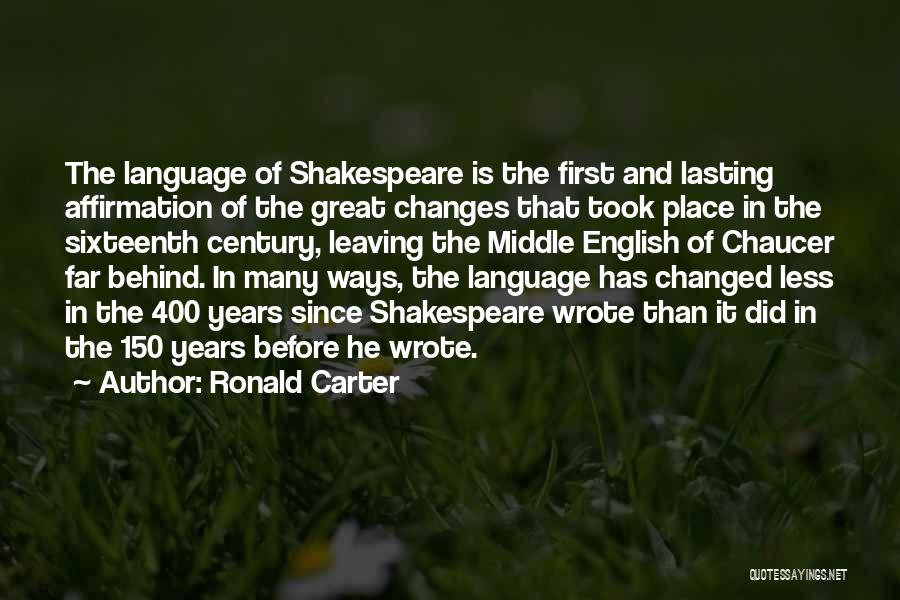
The language of Shakespeare is the first and lasting affirmation of the great changes that took place in the sixteenth century, leaving the Middle English of Chaucer far behind. In many ways, the language has changed less in the 400 years since Shakespeare wrote than it did in the 150 years before he wrote. — Ronald Carter
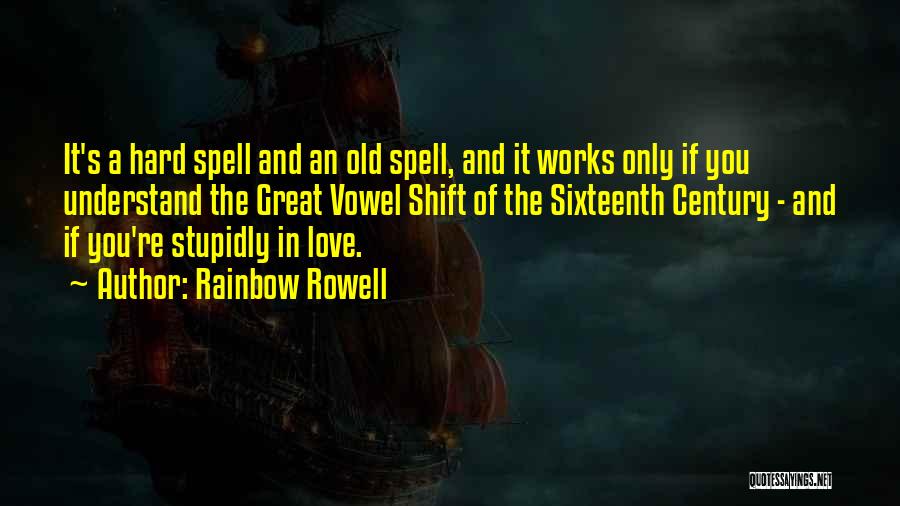
It's a hard spell and an old spell, and it works only if you understand the Great Vowel Shift of the Sixteenth Century - and if you're stupidly in love. — Rainbow Rowell

In the sixteenth century in England, dictionaries such as we would recognize today simply did not exist. If the language that so inspired Shakespeare had limits, if its words had definable origins, spellings, pronunciations, meanings - then no single book existed that established them, defined them, and set them down. — Simon Winchester
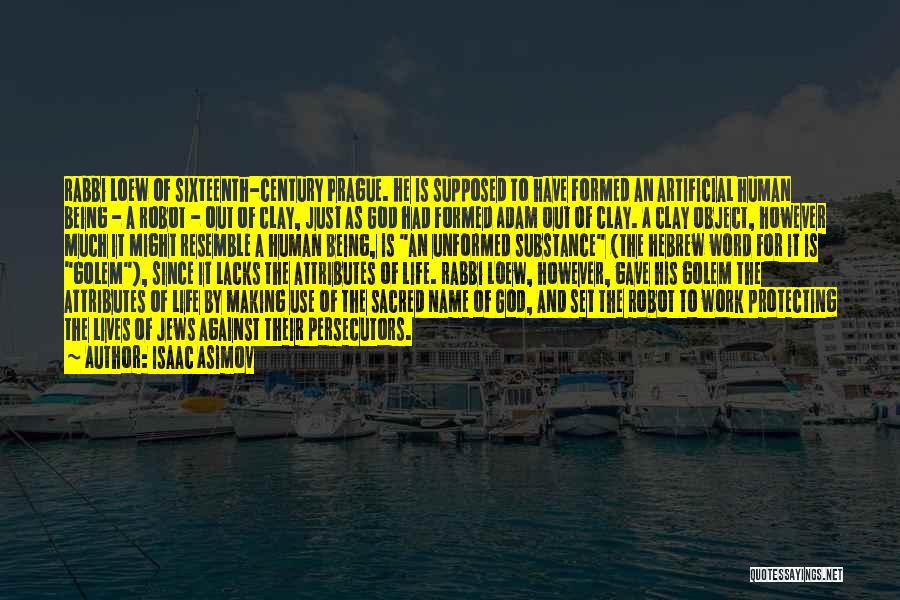
Rabbi Loew of sixteenth-century Prague. He is supposed to have formed an artificial human being - a robot - out of clay, just as God had formed Adam out of clay. A clay object, however much it might resemble a human being, is "an unformed substance" (the Hebrew word for it is "golem"), since it lacks the attributes of life. Rabbi Loew, however, gave his golem the attributes of life by making use of the sacred name of God, and set the robot to work protecting the lives of Jews against their persecutors. — Isaac Asimov

When a Mannerist artist breaks rules he does so on the basis of knowledge and not of ignorance. A considerable amount of North European architecture of the sixteenth century must be excluded for these reasons. — John Shearman
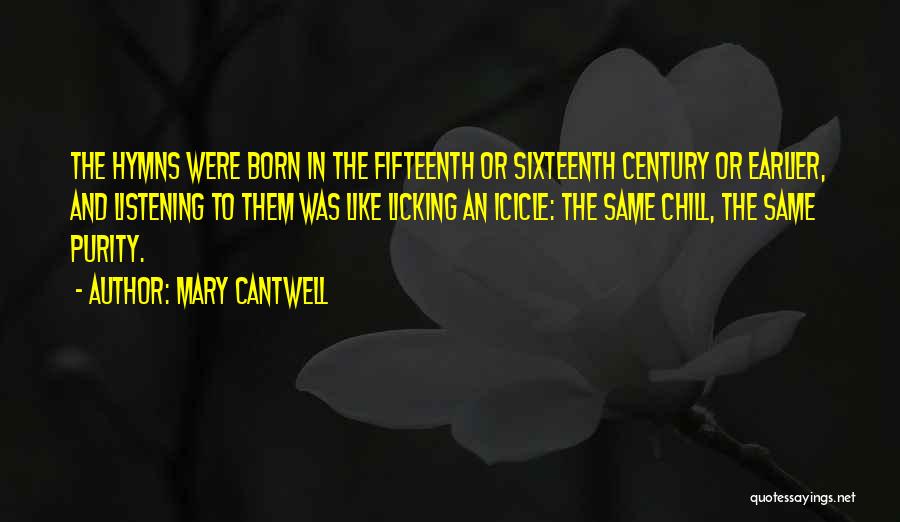
The hymns were born in the fifteenth or sixteenth century or earlier, and listening to them was like licking an icicle: the same chill, the same purity. — Mary Cantwell
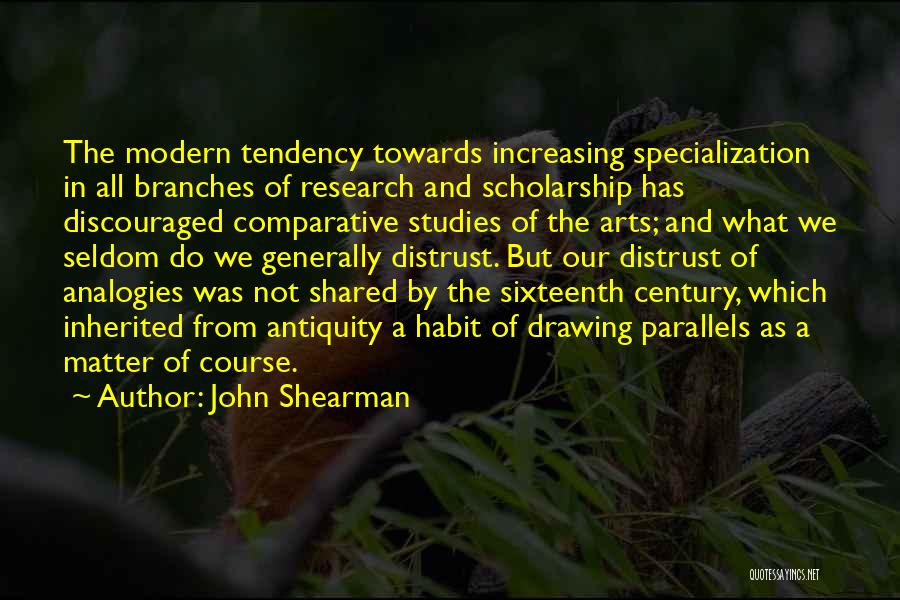
The modern tendency towards increasing specialization in all branches of research and scholarship has discouraged comparative studies of the arts; and what we seldom do we generally distrust. But our distrust of analogies was not shared by the sixteenth century, which inherited from antiquity a habit of drawing parallels as a matter of course. — John Shearman
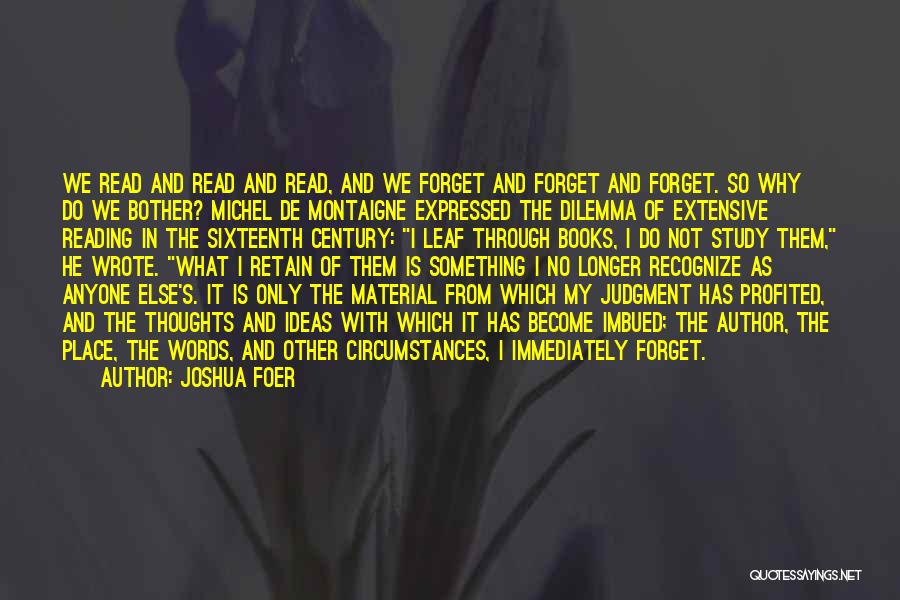
We read and read and read, and we forget and forget and forget. So why do we bother? Michel de Montaigne expressed the dilemma of extensive reading in the sixteenth century: "I leaf through books, I do not study them," he wrote. "What I retain of them is something I no longer recognize as anyone else's. It is only the material from which my judgment has profited, and the thoughts and ideas with which it has become imbued; the author, the place, the words, and other circumstances, I immediately forget. — Joshua Foer
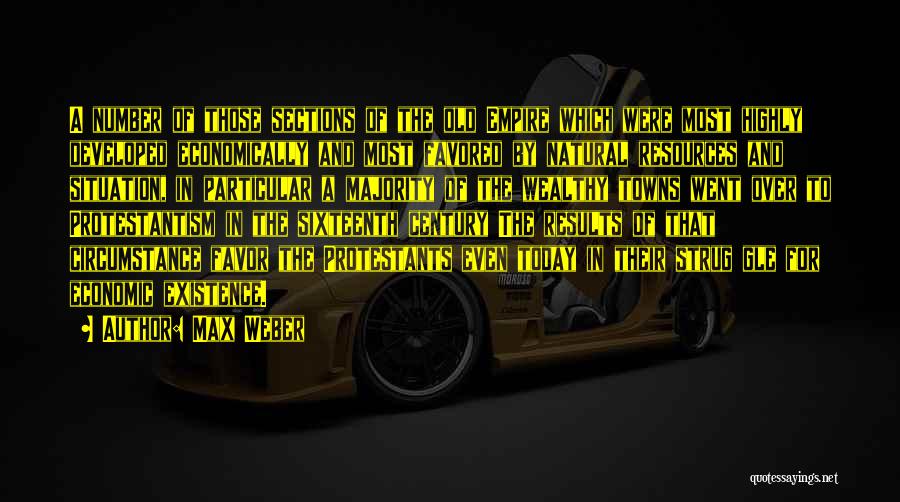
A number of those sections of the old Empire which were most highly developed economically and most favored by natural resources and situation, in particular a majority of the wealthy towns went over to Protestantism in the sixteenth century The results of that circumstance favor the Protestants even today in their strug gle for economic existence. — Max Weber

Sixteenth-century philosopher Michel de Montaigne once wrote, When I play with my cat, how do I know that she is not playing with me rather than I with her? — Michio Kaku
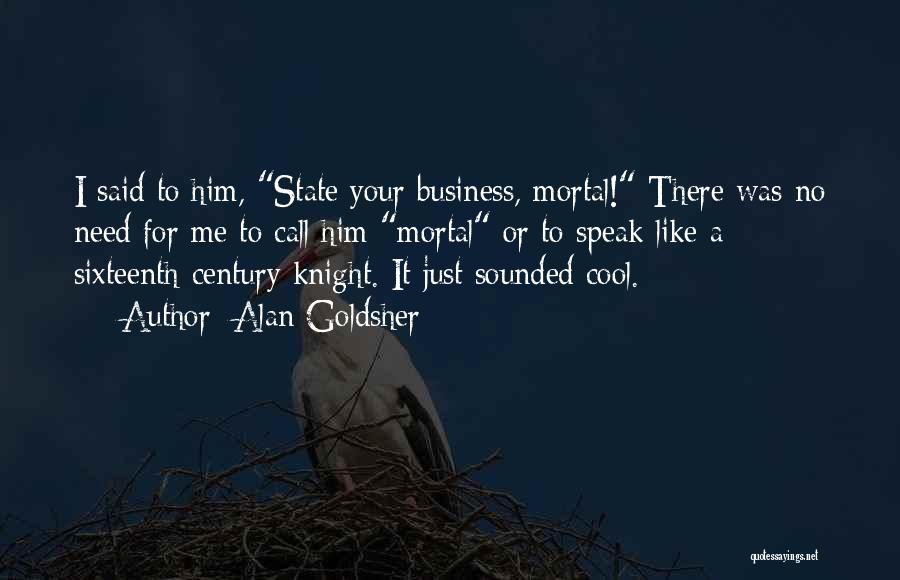
I said to him, "State your business, mortal!" There was no need for me to call him "mortal" or to speak like a sixteenth-century knight. It just sounded cool. — Alan Goldsher

You don't have the touching rights." "How do I get those?" Stop being a self-absorbed spoiled baby. "You get those if I fall in love with you." He stopped. "In love. You're serious?" "Yes." That would shut him up. "What is this, the sixteenth century? Should I write you a sonnet next?" "Is it going to be a good sonnet? — Ilona Andrews
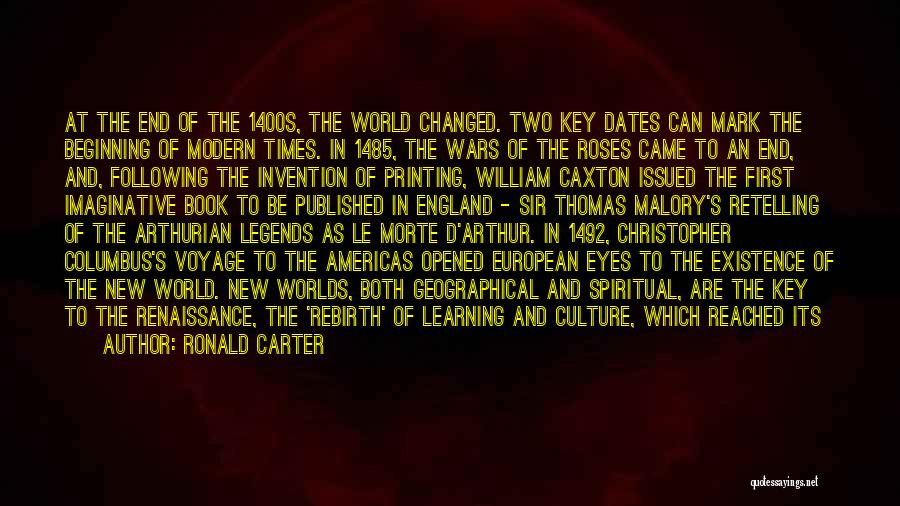
At the end of the 1400s, the world changed. Two key dates can mark the beginning of modern times. In 1485, the Wars of the Roses came to an end, and, following the invention of printing, William Caxton issued the first imaginative book to be published in England - Sir Thomas Malory's retelling of the Arthurian legends as Le Morte D'Arthur. In 1492, Christopher Columbus's voyage to the Americas opened European eyes to the existence of the New World. New worlds, both geographical and spiritual, are the key to the Renaissance, the 'rebirth' of learning and culture, which reached its peak in Italy in the early sixteenth century and in Britain during the reign of Queen Elizabeth I, from 1558 to 1603. — Ronald Carter
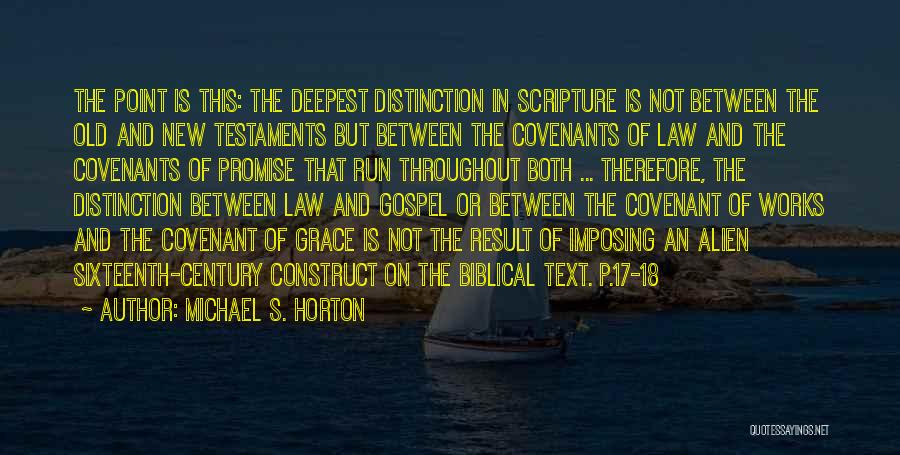
The point is this: The deepest distinction in Scripture is not between the Old and New Testaments but between the covenants of law and the covenants of promise that run throughout both ... Therefore, the distinction between law and gospel or between the covenant of works and the covenant of grace is not the result of imposing an alien sixteenth-century construct on the biblical text. P.17-18 — Michael S. Horton
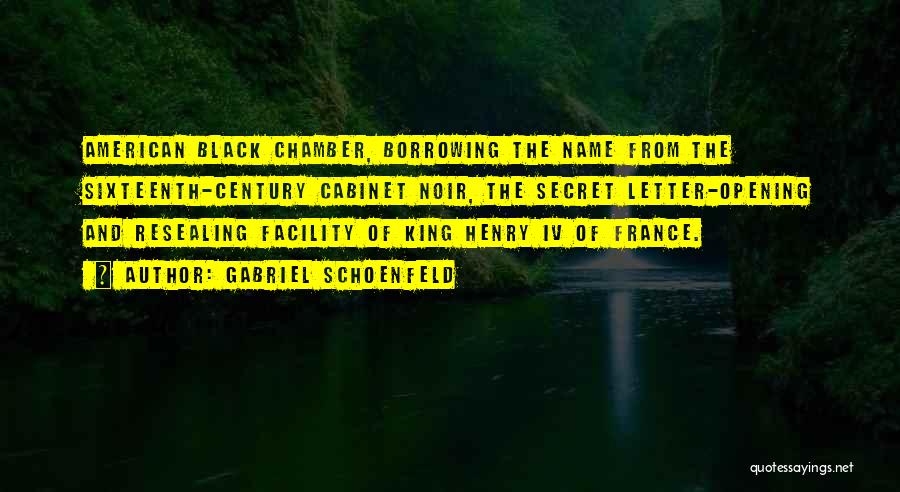
American Black Chamber, borrowing the name from the sixteenth-century cabinet noir, the secret letter-opening and resealing facility of King Henry IV of France. — Gabriel Schoenfeld
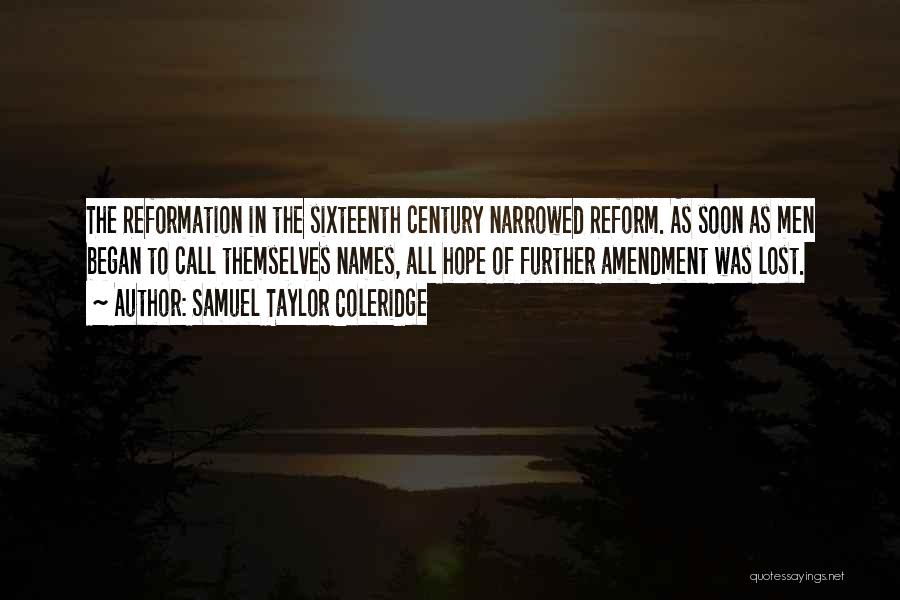
The Reformation in the sixteenth century narrowed Reform. As soon as men began to call themselves names, all hope of further amendment was lost. — Samuel Taylor Coleridge
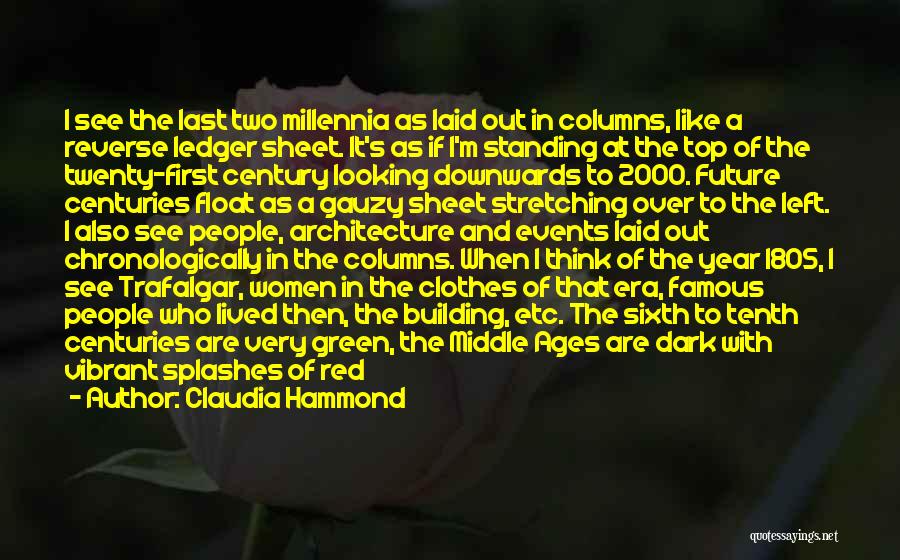
I see the last two millennia as laid out in columns, like a reverse ledger sheet. It's as if I'm standing at the top of the twenty-first century looking downwards to 2000. Future centuries float as a gauzy sheet stretching over to the left. I also see people, architecture and events laid out chronologically in the columns. When I think of the year 1805, I see Trafalgar, women in the clothes of that era, famous people who lived then, the building, etc. The sixth to tenth centuries are very green, the Middle Ages are dark with vibrant splashes of red and blue and the sixteenth and seventeenth centuries are brown with rich, lush colours in the furniture and clothing. — Claudia Hammond
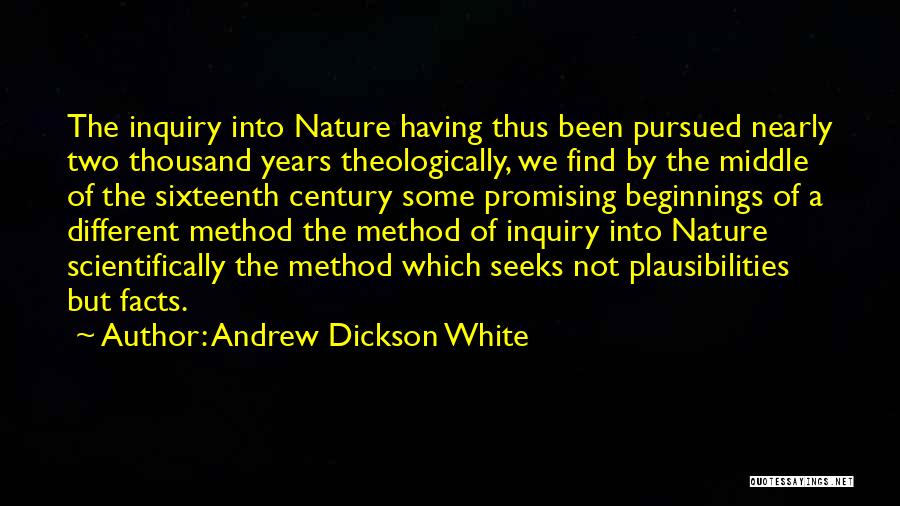
The inquiry into Nature having thus been pursued nearly two thousand years theologically, we find by the middle of the sixteenth century some promising beginnings of a different method the method of inquiry into Nature scientifically the method which seeks not plausibilities but facts. — Andrew Dickson White
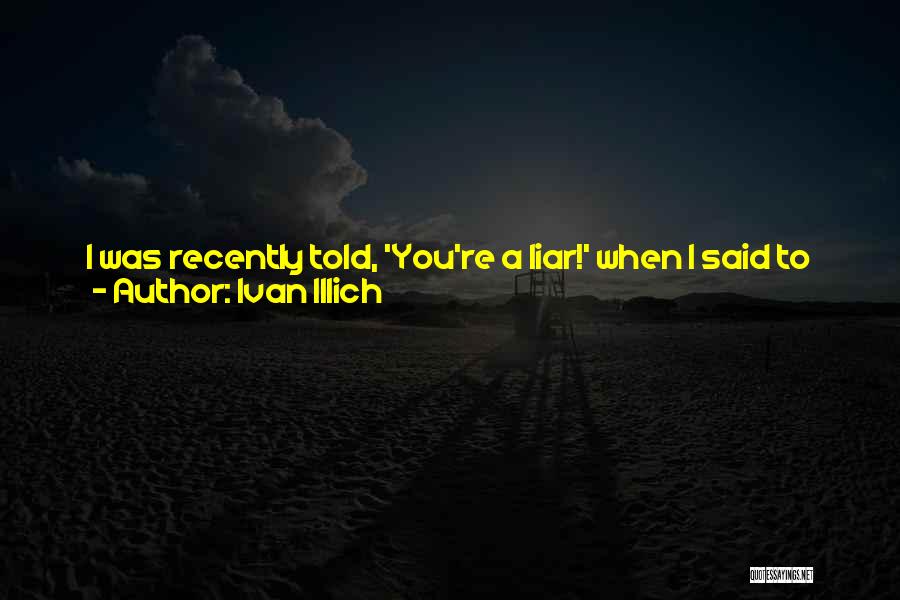
I was recently told, 'You're a liar!' when I said to somebody I walked down the spine of the Andes. Every Spaniard in the sixteenth, seventeenth century did that. The idea that somebody could just walk! He can jog perhaps in the morning, but he can't walk anywhere! The world has become inaccessible because we drive there. — Ivan Illich
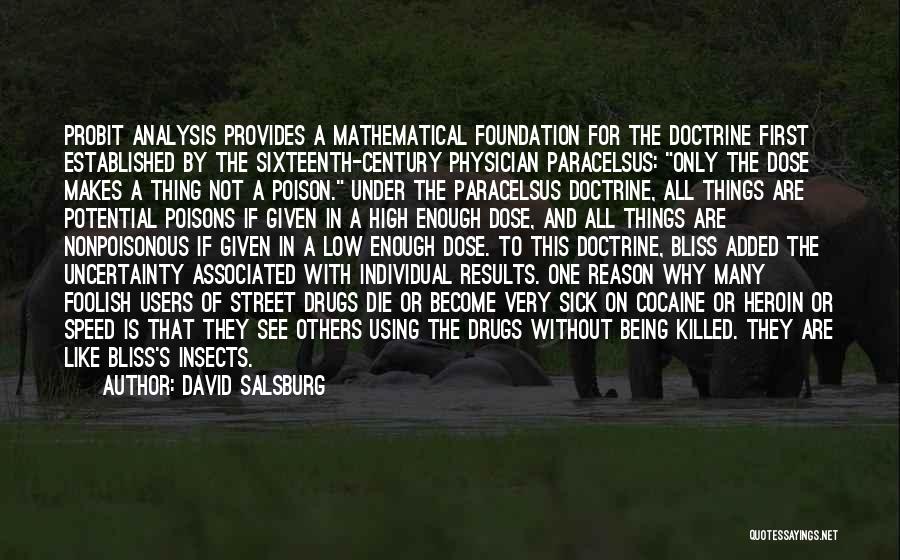
Probit analysis provides a mathematical foundation for the doctrine first established by the sixteenth-century physician Paracelsus: "Only the dose makes a thing not a poison." Under the Paracelsus doctrine, all things are potential poisons if given in a high enough dose, and all things are nonpoisonous if given in a low enough dose. To this doctrine, Bliss added the uncertainty associated with individual results. One reason why many foolish users of street drugs die or become very sick on cocaine or heroin or speed is that they see others using the drugs without being killed. They are like Bliss's insects. They look around and see some of their fellow insects still alive. However, knowing that some individuals are still living provides no assurance that a given individual will survive. There is no way of predicting the response of a single individual. — David Salsburg

I go out every night with a homemade sextant and sight Deneb. It's kind of silly if you think about it. I'm in my space suit on Mars and I'm navigating with sixteenth-century tools. But hey, they work. — Andy Weir

I don't think I'm an exceptionally bad reader. I suspect that many people, maybe even most, are like me. We read and read and read,
and we forget and forget and forget. So why do we bother? Michel de Montaigne expressed the dilemma of extensive reading in the
sixteenth century: "I leaf through books, I do not study them," he wrote. "What I retain of them is something I no longer recognize as anyone else's.
It is only the material from which my judgment has profited, and the thoughts and ideas with which it has become imbued;
the author, the place, the words, and other circumstances, I immediately forget." He goes on to explain how "to compensate a
little for the treachery and weakness of my memory," he adopted the habit of writing in the back of every book a short critical
judgment, so as to have at least some general idea of what the tome was about and what he thought of it. — Joshua Foer
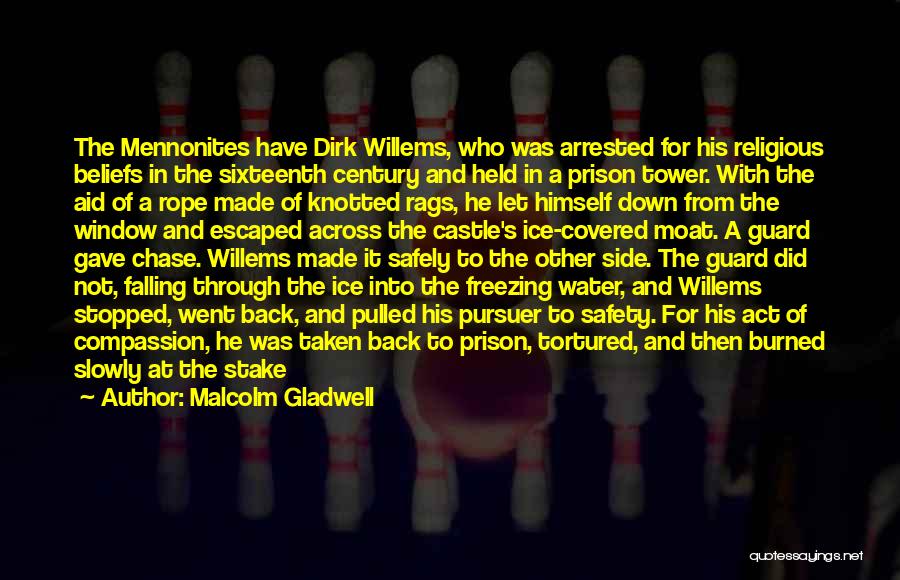
The Mennonites have Dirk Willems, who was arrested for his religious beliefs in the sixteenth century and held in a prison tower. With the aid of a rope made of knotted rags, he let himself down from the window and escaped across the castle's ice-covered moat. A guard gave chase. Willems made it safely to the other side. The guard did not, falling through the ice into the freezing water, and Willems stopped, went back, and pulled his pursuer to safety. For his act of compassion, he was taken back to prison, tortured, and then burned slowly at the stake as he repeated "Oh, my Lord, my God" seventy times over.8 — Malcolm Gladwell
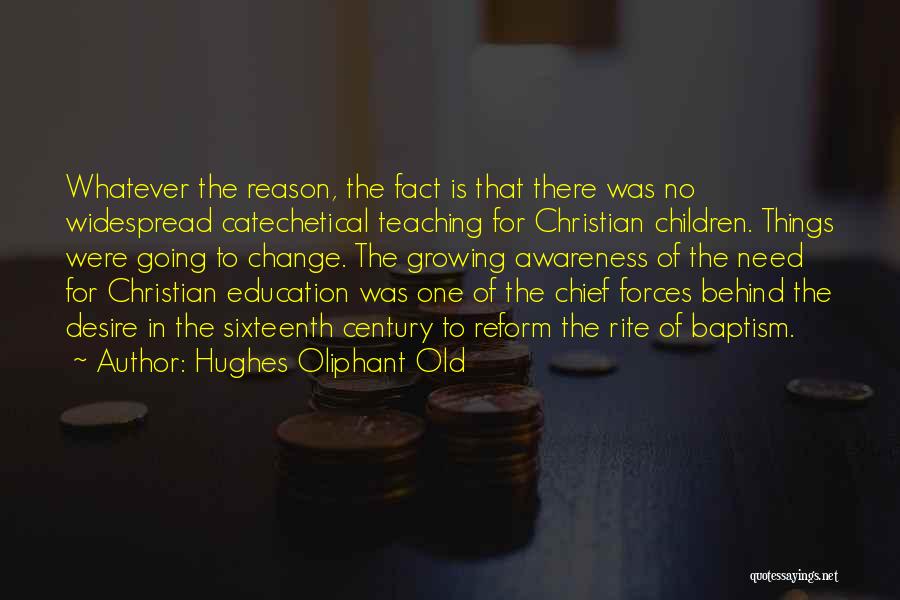
Whatever the reason, the fact is that there was no widespread catechetical teaching for Christian children. Things were going to change. The growing awareness of the need for Christian education was one of the chief forces behind the desire in the sixteenth century to reform the rite of baptism. — Hughes Oliphant Old
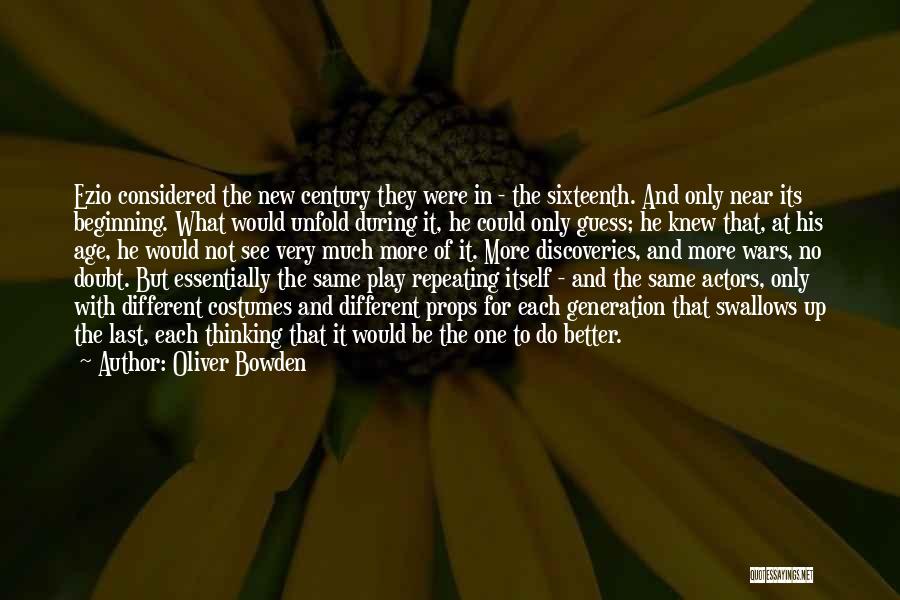
Ezio considered the new century they were in - the sixteenth. And only near its beginning. What would unfold during it, he could only guess; he knew that, at his age, he would not see very much more of it. More discoveries, and more wars, no doubt. But essentially the same play repeating itself - and the same actors, only with different costumes and different props for each generation that swallows up the last, each thinking that it would be the one to do better. — Oliver Bowden
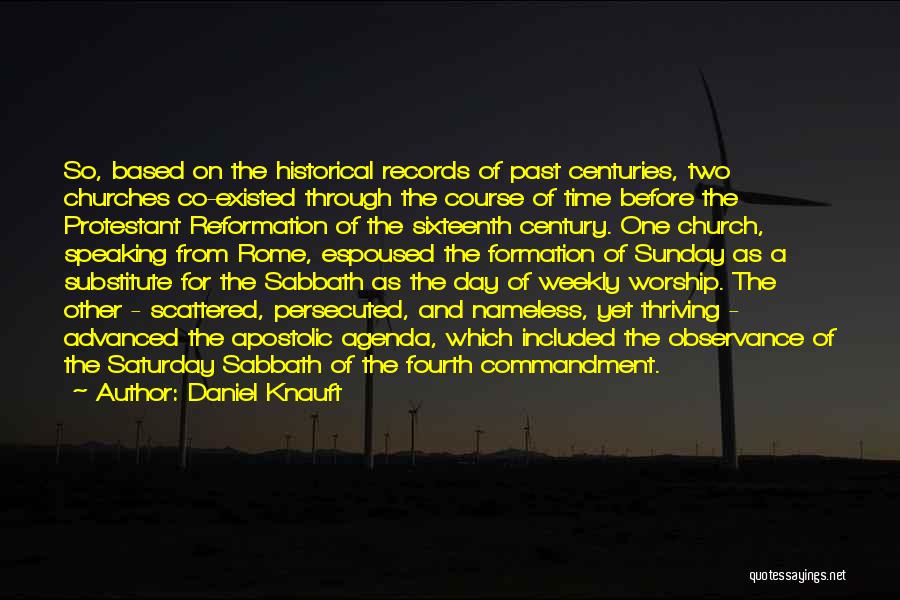
So, based on the historical records of past centuries, two churches co-existed through the course of time before the Protestant Reformation of the sixteenth century. One church, speaking from Rome, espoused the formation of Sunday as a substitute for the Sabbath as the day of weekly worship. The other - scattered, persecuted, and nameless, yet thriving - advanced the apostolic agenda, which included the observance of the Saturday Sabbath of the fourth commandment. — Daniel Knauft
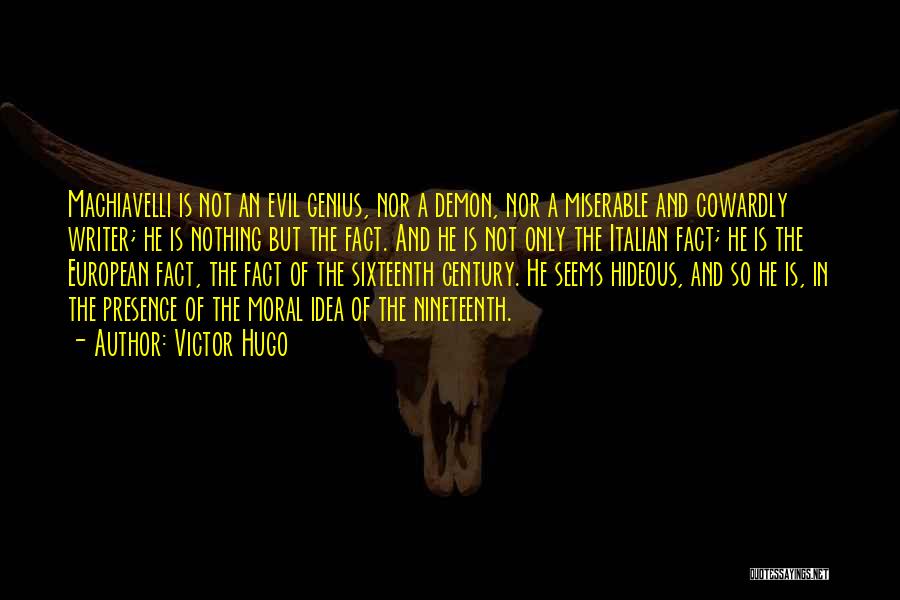
Machiavelli is not an evil genius, nor a demon, nor a miserable and cowardly writer; he is nothing but the fact. And he is not only the Italian fact; he is the European fact, the fact of the sixteenth century. He seems hideous, and so he is, in the presence of the moral idea of the nineteenth. — Victor Hugo
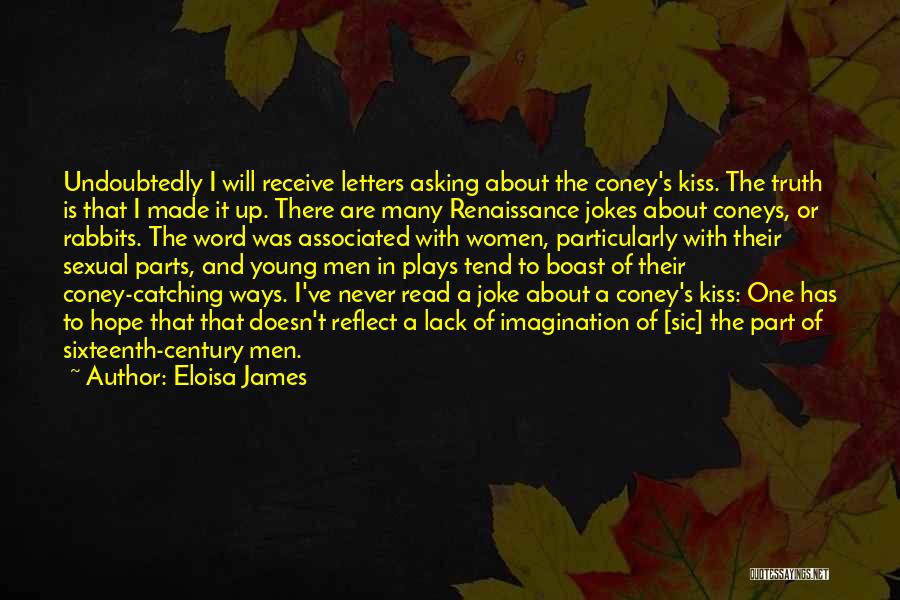
Undoubtedly I will receive letters asking about the coney's kiss. The truth is that I made it up. There are many Renaissance jokes about coneys, or rabbits. The word was associated with women, particularly with their sexual parts, and young men in plays tend to boast of their coney-catching ways. I've never read a joke about a coney's kiss: One has to hope that that doesn't reflect a lack of imagination of [sic] the part of sixteenth-century men. — Eloisa James
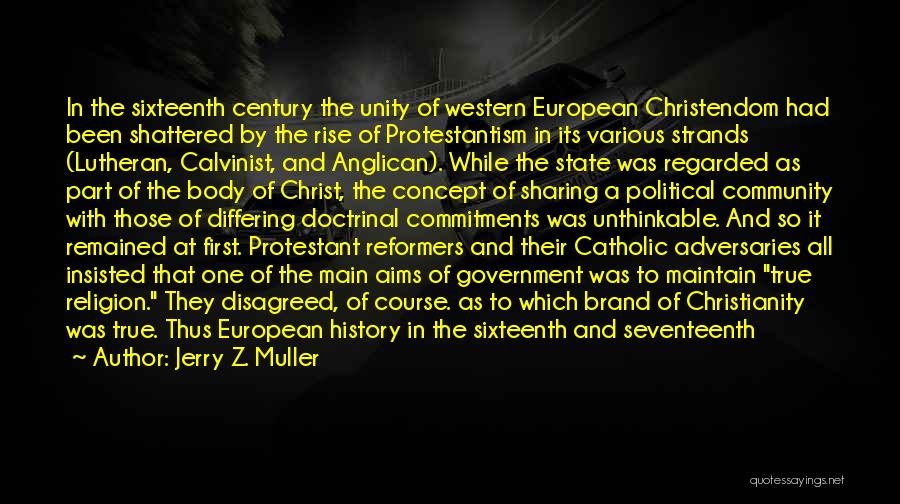
In the sixteenth century the unity of western European Christendom had been shattered by the rise of Protestantism in its various strands (Lutheran, Calvinist, and Anglican). While the state was regarded as part of the body of Christ, the concept of sharing a political community with those of differing doctrinal commitments was unthinkable. And so it remained at first. Protestant reformers and their Catholic adversaries all insisted that one of the main aims of government was to maintain "true religion." They disagreed, of course. as to which brand of Christianity was true. Thus European history in the sixteenth and seventeenth centuries became a chronicle of civil war, of massacre, and of the expulsion of religious minorities. The notion of religious toleration grew less out of any particular brand of Christianity than out of the fear and frustration of protracted civil war. (p. 24) — Jerry Z. Muller

Bombast, an old Swabian name, has inevitably given rise to the idea that Paracelsus's bluster and arrogance lie at the root of the word "bombastic." One feels that it ought to be so, but it is not. Baum means "tree" in German (in the Swabian dialect it is rendered Bom), and Baumbast is the fibrous layer of a tree's bark. But in the sixteenth century "bombast" had also come to mean cotton padding, inappropriately derived from bombax, the medieval Latin name for the silkworm, and it is from this origin that the connotation of puffed up derives. — Philip Ball

Florida is a paradox that way, one of the youngest states, yet with some of the oldest European settlements. And this particular section of the northeast shore was home to a couple of the earliest sixteenth-century Spanish and French fortifications. — Tim Dorsey
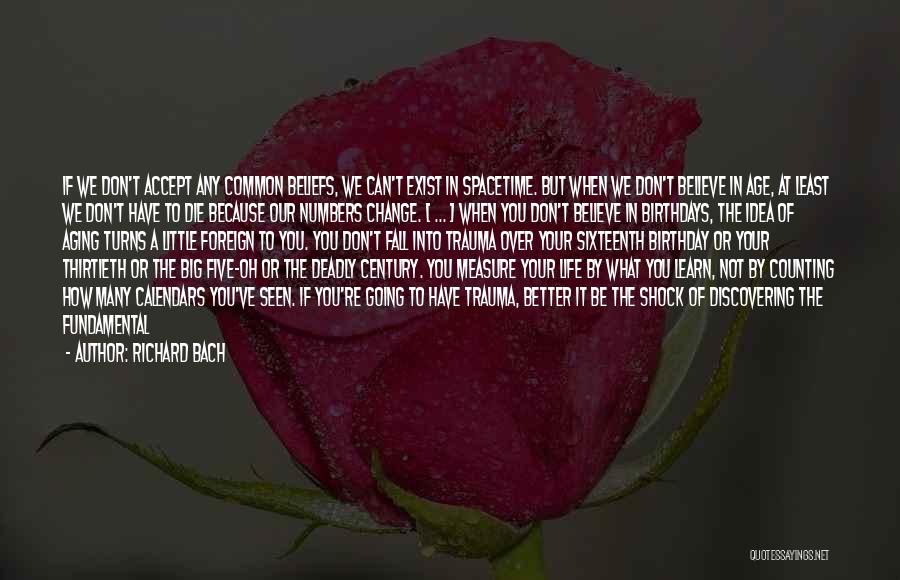
If we don't accept any common beliefs, we can't exist in spacetime. But when we don't believe in age, at least we don't have to die because our numbers change. [ ... ] When you don't believe in birthdays, the idea of aging turns a little foreign to you. You don't fall into trauma over your sixteenth birthday or your thirtieth or the big Five-Oh or the deadly Century. You measure your life by what you learn, not by counting how many calendars you've seen. If you're going to have trauma, better it be the shock of discovering the fundamental principle of the universe that some date predictable as next July. — Richard Bach
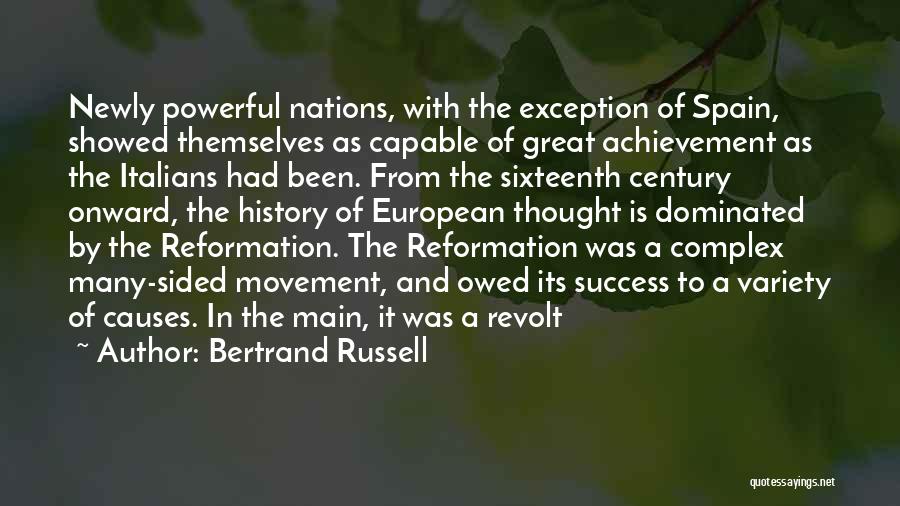
Newly powerful nations, with the exception of Spain, showed themselves as capable of great achievement as the Italians had been. From the sixteenth century onward, the history of European thought is dominated by the Reformation. The Reformation was a complex many-sided movement, and owed its success to a variety of causes. In the main, it was a revolt — Bertrand Russell
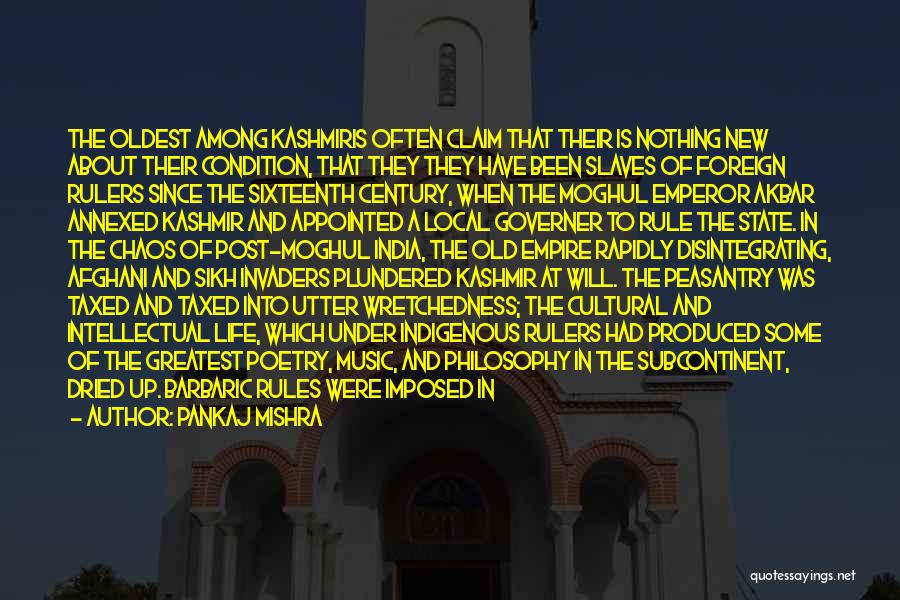
The oldest among Kashmiris often claim that their is nothing new about their condition, that they they have been slaves of foreign rulers since the sixteenth century, when the Moghul emperor Akbar annexed Kashmir and appointed a local governer to rule the state. In the chaos of post-Moghul India, the old empire rapidly disintegrating, Afghani and Sikh invaders plundered Kashmir at will. The peasantry was taxed and taxed into utter wretchedness; the cultural and intellectual life, which under indigenous rulers had produced some of the greatest poetry, music, and philosophy in the subcontinent, dried up. Barbaric rules were imposed in the early nineteenth century, a Sikh who killed a native of Kashmir was fined nothing more than two rupees. Victor Jacquemont, a botanist and friend of Stendahl's who came to the valley in 1831, thought that nowhere else in India were the masses as poor and denuded as they were in Kashmir. — Pankaj Mishra
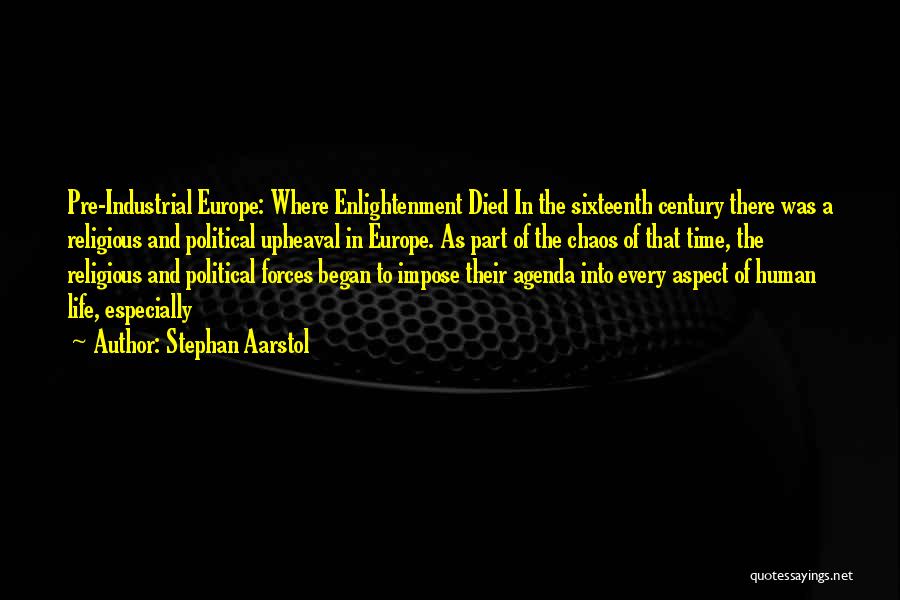
Pre-Industrial Europe: Where Enlightenment Died In the sixteenth century there was a religious and political upheaval in Europe. As part of the chaos of that time, the religious and political forces began to impose their agenda into every aspect of human life, especially — Stephan Aarstol
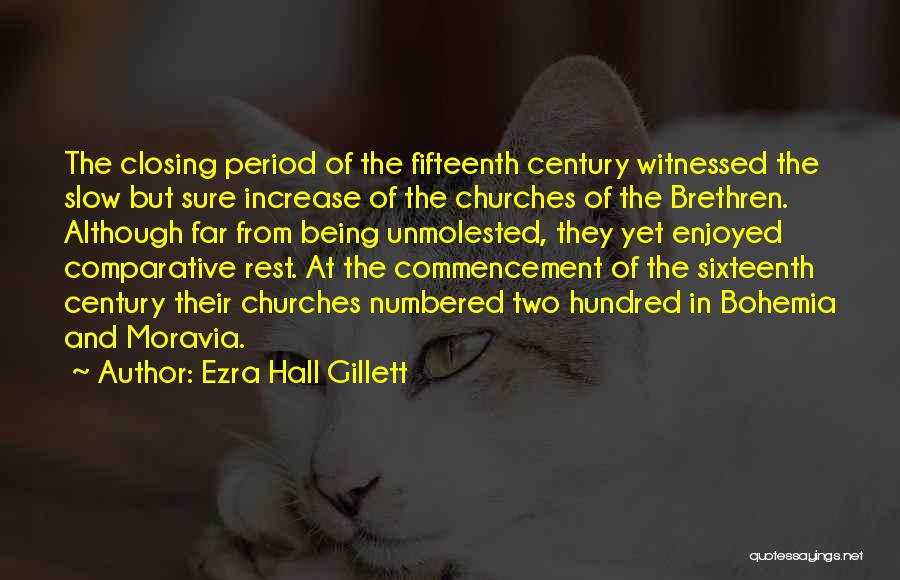
The closing period of the fifteenth century witnessed the slow but sure increase of the churches of the Brethren. Although far from being unmolested, they yet enjoyed comparative rest. At the commencement of the sixteenth century their churches numbered two hundred in Bohemia and Moravia. — Ezra Hall Gillett
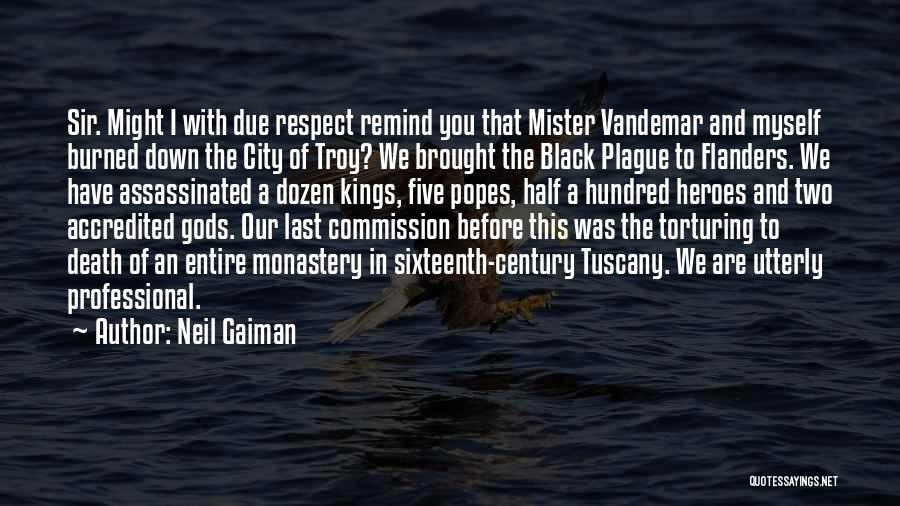
Sir. Might I with due respect remind you that Mister Vandemar and myself burned down the City of Troy? We brought the Black Plague to Flanders. We have assassinated a dozen kings, five popes, half a hundred heroes and two accredited gods. Our last commission before this was the torturing to death of an entire monastery in sixteenth-century Tuscany. We are utterly professional. — Neil Gaiman
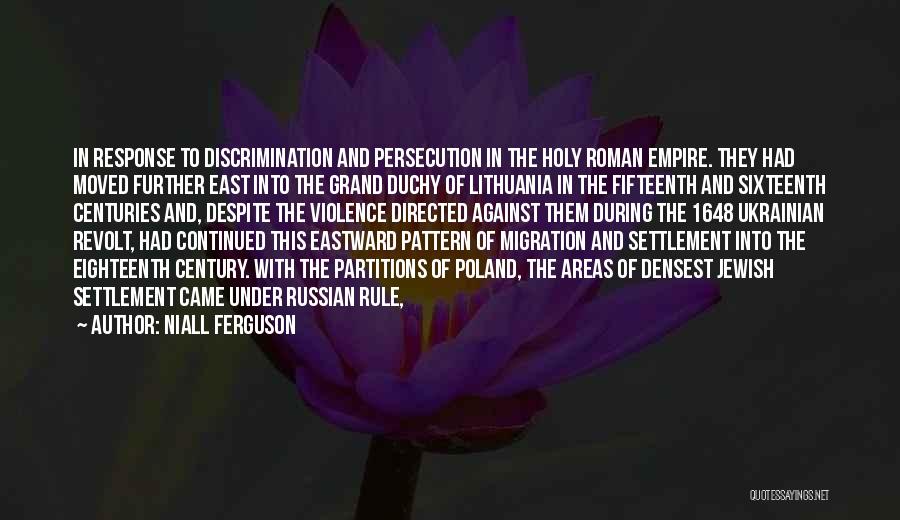
In response to discrimination and persecution in the Holy Roman Empire. They had moved further east into the Grand Duchy of Lithuania in the fifteenth and sixteenth centuries and, despite the violence directed against them during the 1648 Ukrainian revolt, had continued this eastward pattern of migration and settlement into the eighteenth century. With the partitions of Poland, the areas of densest Jewish settlement came under Russian rule, — Niall Ferguson
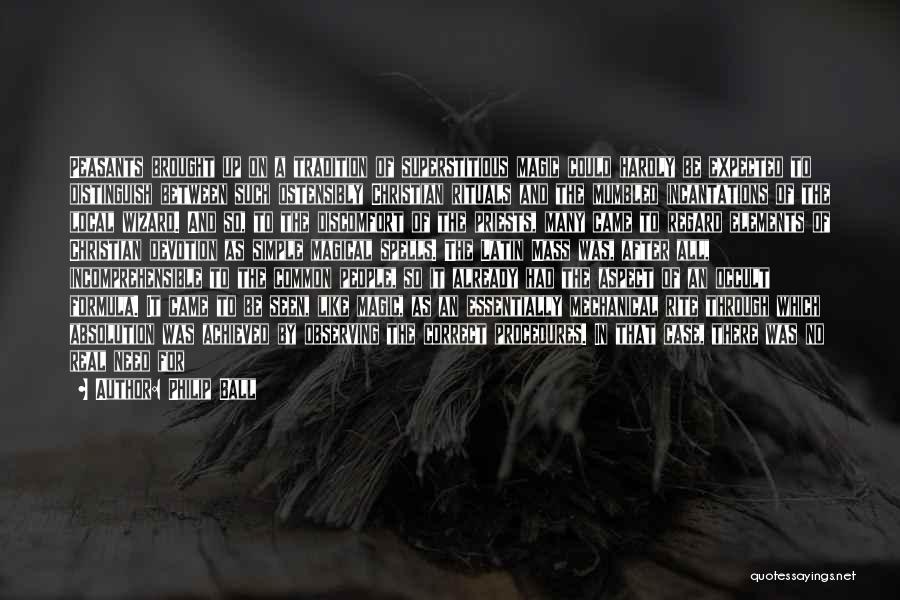
Peasants brought up on a tradition of superstitious magic could hardly be expected to distinguish between such ostensibly Christian rituals and the mumbled incantations of the local wizard. And so, to the discomfort of the priests, many came to regard elements of Christian devotion as simple magical spells. The Latin Mass was, after all, incomprehensible to the common people, so it already had the aspect of an occult formula. It came to be seen, like magic, as an essentially mechanical rite through which absolution was achieved by observing the correct procedures. In that case, there was no real need for faith. — Philip Ball
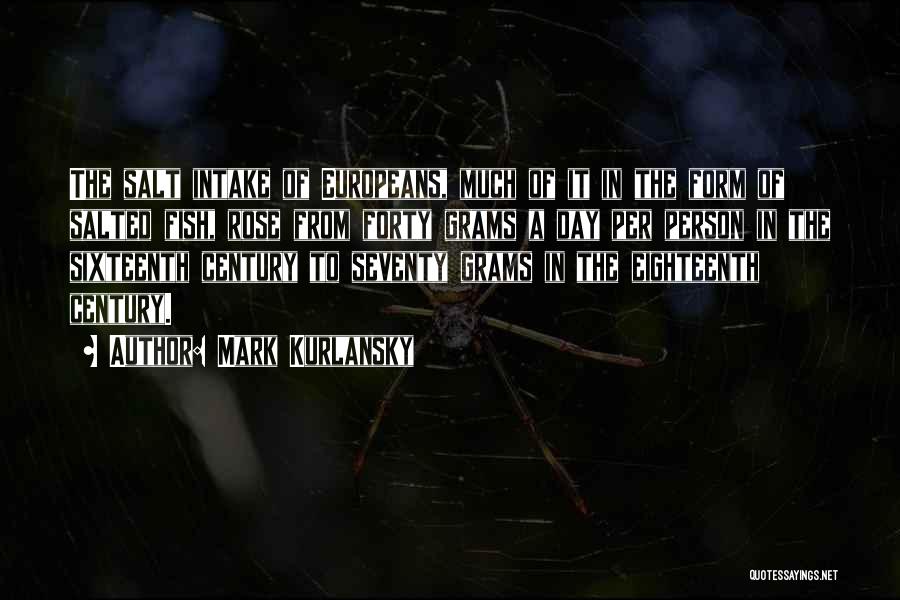
The salt intake of Europeans, much of it in the form of salted fish, rose from forty grams a day per person in the sixteenth century to seventy grams in the eighteenth century. — Mark Kurlansky
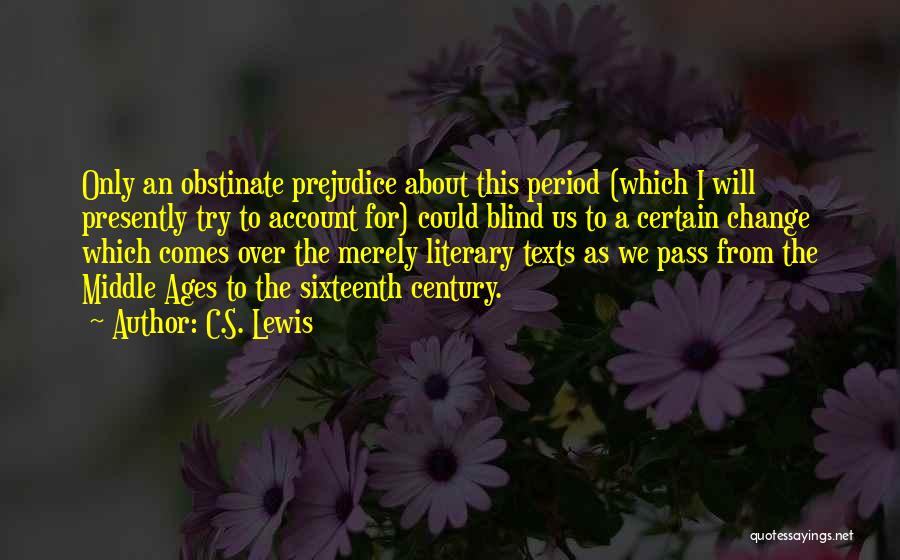
Only an obstinate prejudice about this period (which I will presently try to account for) could blind us to a certain change which comes over the merely literary texts as we pass from the Middle Ages to the sixteenth century. — C.S. Lewis
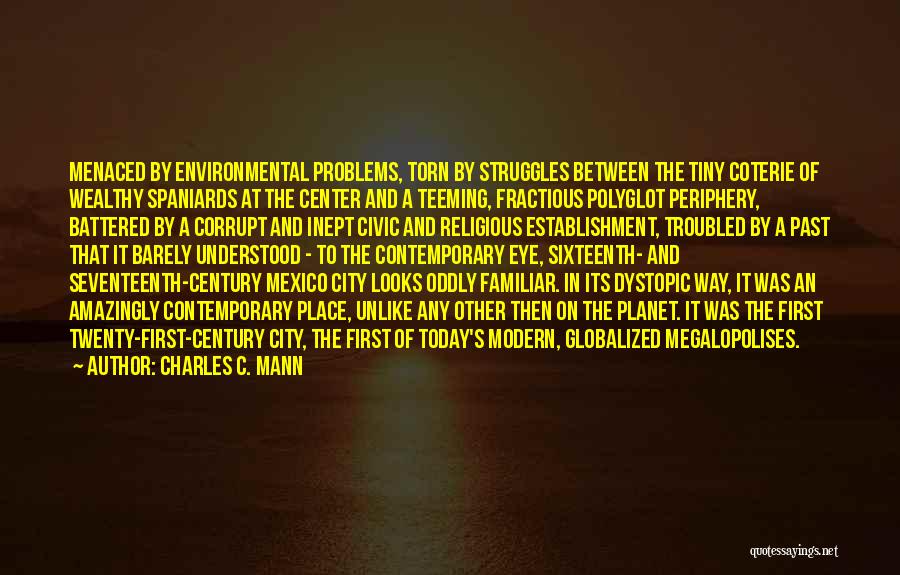
Menaced by environmental problems, torn by struggles between the tiny coterie of wealthy Spaniards at the center and a teeming, fractious polyglot periphery, battered by a corrupt and inept civic and religious establishment, troubled by a past that it barely understood - to the contemporary eye, sixteenth- and seventeenth-century Mexico City looks oddly familiar. In its dystopic way, it was an amazingly contemporary place, unlike any other then on the planet. It was the first twenty-first-century city, the first of today's modern, globalized megalopolises. — Charles C. Mann

Dr. White quotes with great confidence and absolute assurance a Papal decree issued in the year 1300 by Pope Boniface VIII., which forbade the mutilation of the human body and consequently hampered all possibility of progress in anatomy for {30} several important centuries in the history of modern science. Indeed, this supposed Papal prohibition of dissection is definitely stated to have precluded all opportunity for the proper acquisition of anatomical knowledge until the first half of the sixteenth century, when the Golden Age of modern anatomy set in. This date being coincident with the spread of the movement known as the Protestant Reformation, many people at once conclude that somehow the liberality of spirit that then came into the world, and is supposed at least to have put an end to all intolerance, — James Joseph Walsh
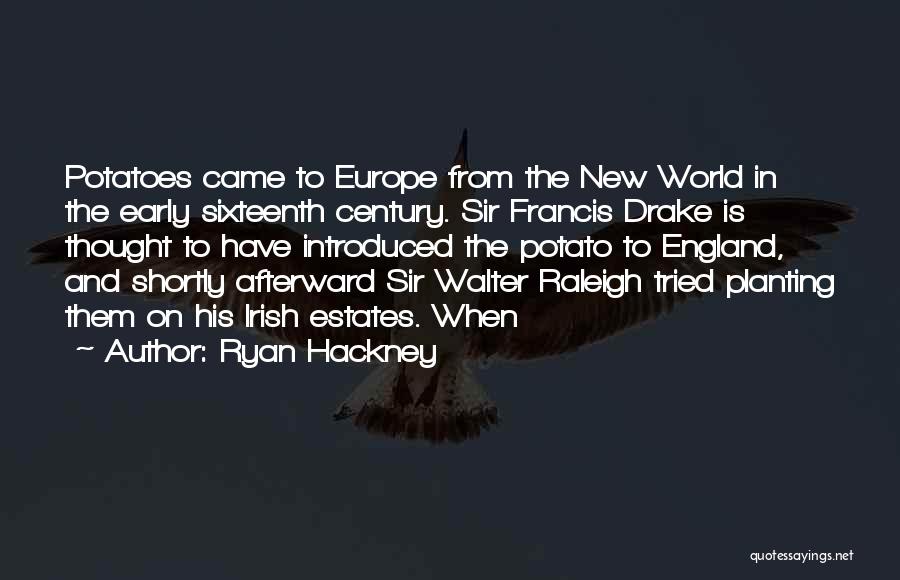
Potatoes came to Europe from the New World in the early sixteenth century. Sir Francis Drake is thought to have introduced the potato to England, and shortly afterward Sir Walter Raleigh tried planting them on his Irish estates. When — Ryan Hackney
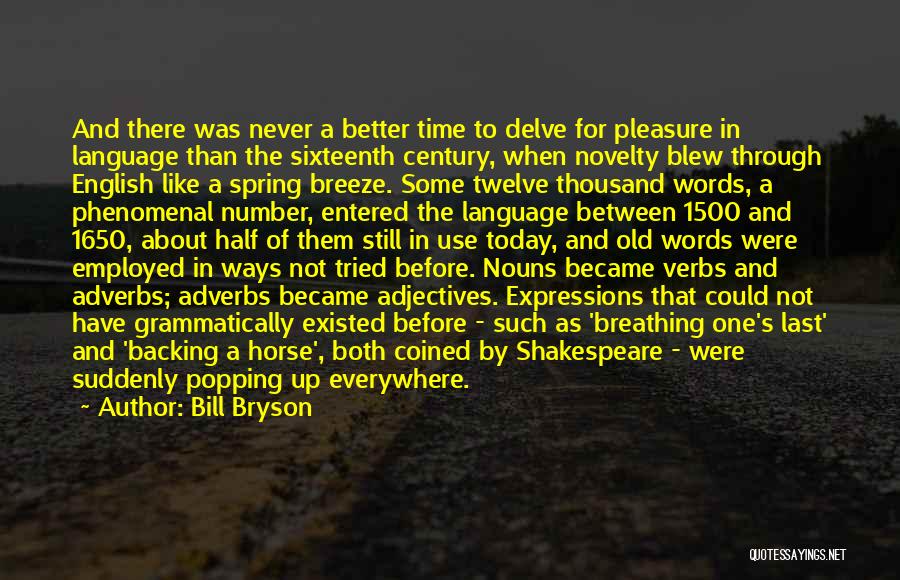
And there was never a better time to delve for pleasure in language than the sixteenth century, when novelty blew through English like a spring breeze. Some twelve thousand words, a phenomenal number, entered the language between 1500 and 1650, about half of them still in use today, and old words were employed in ways not tried before. Nouns became verbs and adverbs; adverbs became adjectives. Expressions that could not have grammatically existed before - such as 'breathing one's last' and 'backing a horse', both coined by Shakespeare - were suddenly popping up everywhere. — Bill Bryson
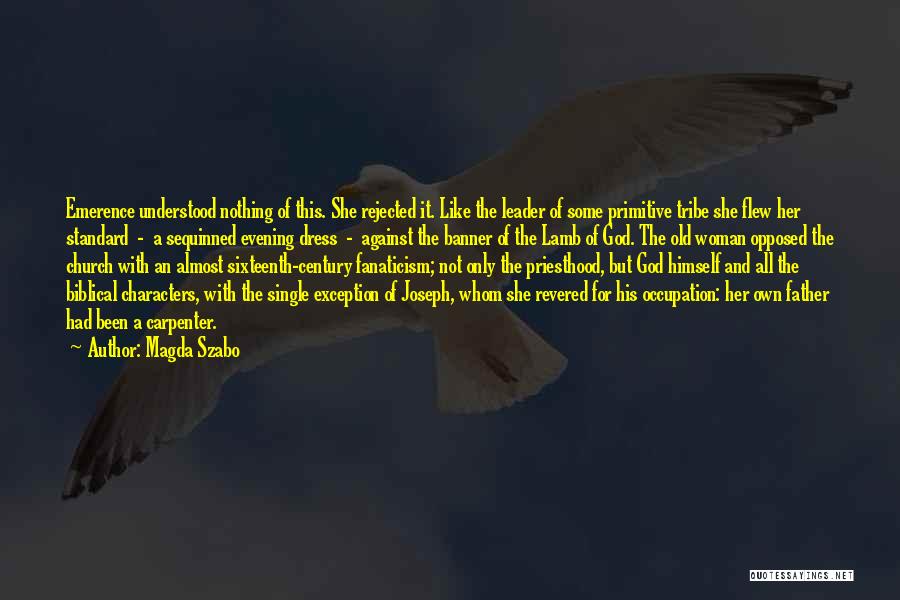
Emerence understood nothing of this. She rejected it. Like the leader of some primitive tribe she flew her standard - a sequinned evening dress - against the banner of the Lamb of God. The old woman opposed the church with an almost sixteenth-century fanaticism; not only the priesthood, but God himself and all the biblical characters, with the single exception of Joseph, whom she revered for his occupation: her own father had been a carpenter. — Magda Szabo

Sheepskin is a marvelously durable medium, though it has to be treated with some care. Whereas ink soaks into the fibers on paper, on sheepskin it stays on the surface, rather like chalk on a blackboard, and so can be rubbed away comparatively easily. "Sixteenth-century paper was of good quality, too," he went on. "It was made of rags and was virtually acid free, so it has lasted very well. — Bill Bryson
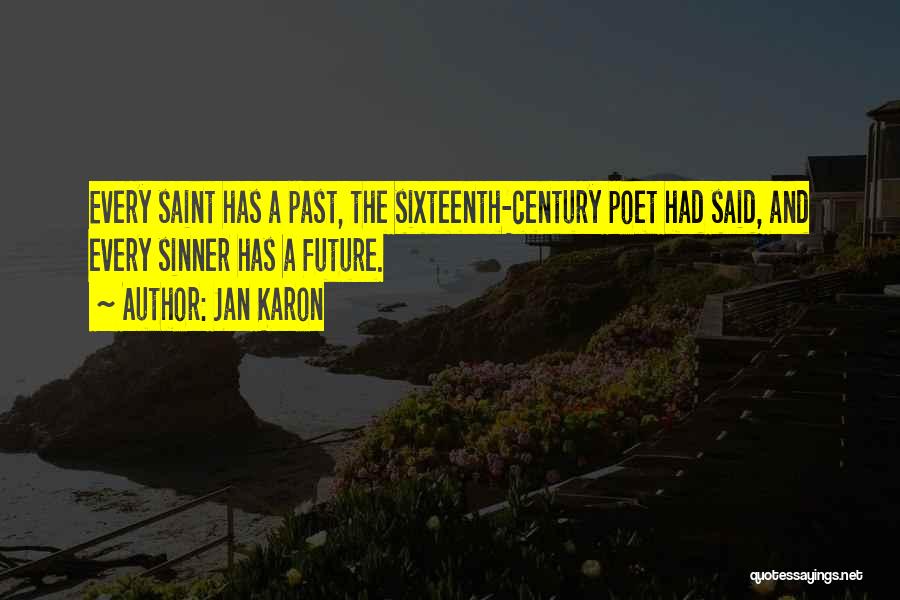
Every saint has a past, the sixteenth-century poet had said, and every sinner has a future. — Jan Karon
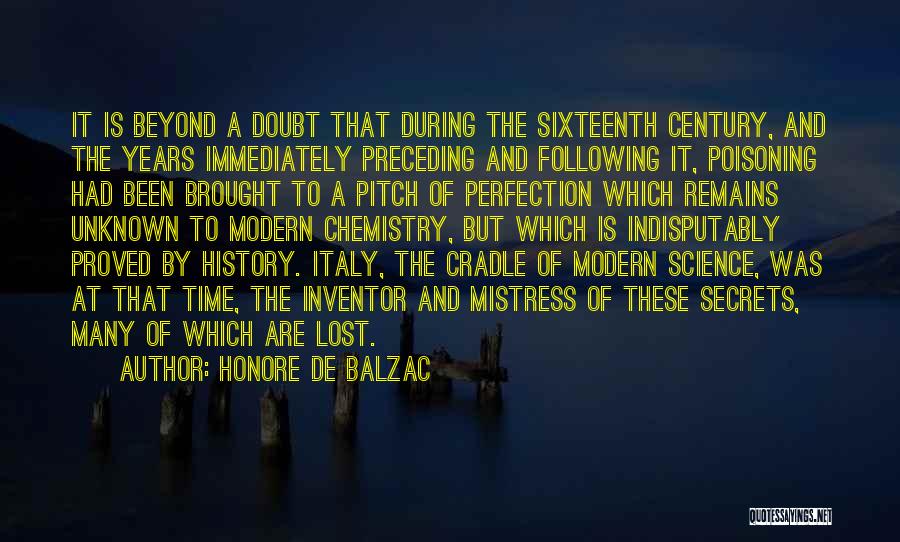
It is beyond a doubt that during the sixteenth century, and the years immediately preceding and following it, poisoning had been brought to a pitch of perfection which remains unknown to modern chemistry, but which is indisputably proved by history. Italy, the cradle of modern science, was at that time, the inventor and mistress of these secrets, many of which are lost. — Honore De Balzac
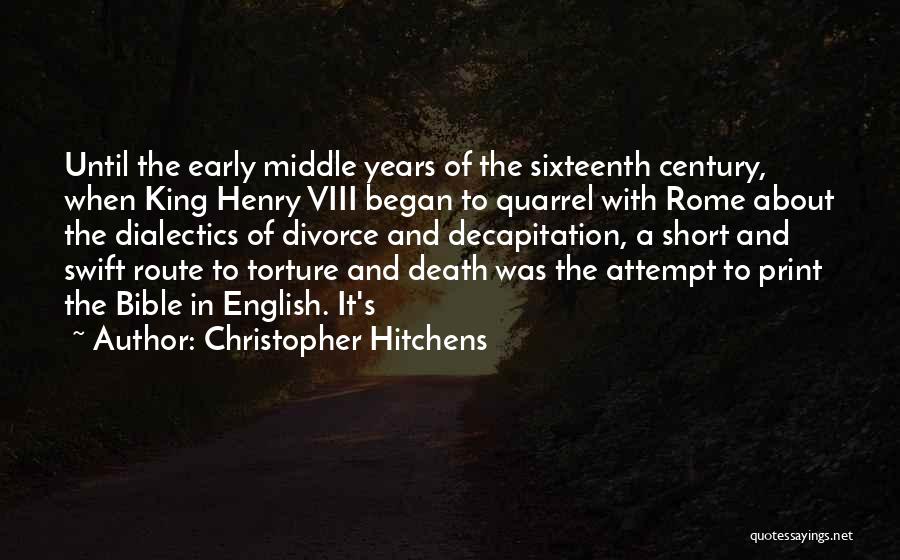
Until the early middle years of the sixteenth century, when King Henry VIII began to quarrel with Rome about the dialectics of divorce and decapitation, a short and swift route to torture and death was the attempt to print the Bible in English. It's — Christopher Hitchens
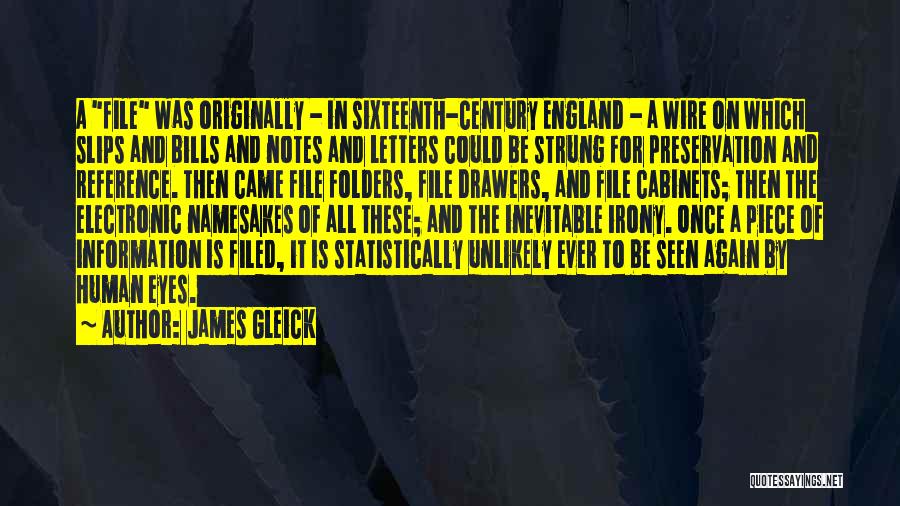
A "file" was originally - in sixteenth-century England - a wire on which slips and bills and notes and letters could be strung for preservation and reference. Then came file folders, file drawers, and file cabinets; then the electronic namesakes of all these; and the inevitable irony. Once a piece of information is filed, it is statistically unlikely ever to be seen again by human eyes. — James Gleick
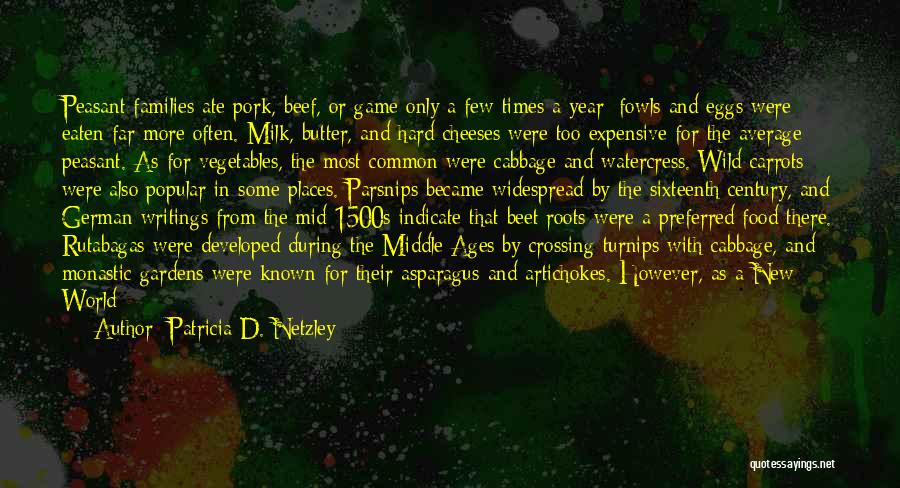
Peasant families ate pork, beef, or game only a few times a year; fowls and eggs were eaten far more often. Milk, butter, and hard cheeses were too expensive for the average peasant. As for vegetables, the most common were cabbage and watercress. Wild carrots were also popular in some places. Parsnips became widespread by the sixteenth century, and German writings from the mid-1500s indicate that beet roots were a preferred food there. Rutabagas were developed during the Middle Ages by crossing turnips with cabbage, and monastic gardens were known for their asparagus and artichokes. However, as a New World vegetable, the potato was not introduced into Europe until the late 1500s or early 1600s, and for a long time it was thought to be merely a decorative plant.
"Most people ate only two meals a day. In most places, water was not the normal beverage. In Italy and France people drank wine, in Germany and England ale or beer. — Patricia D. Netzley
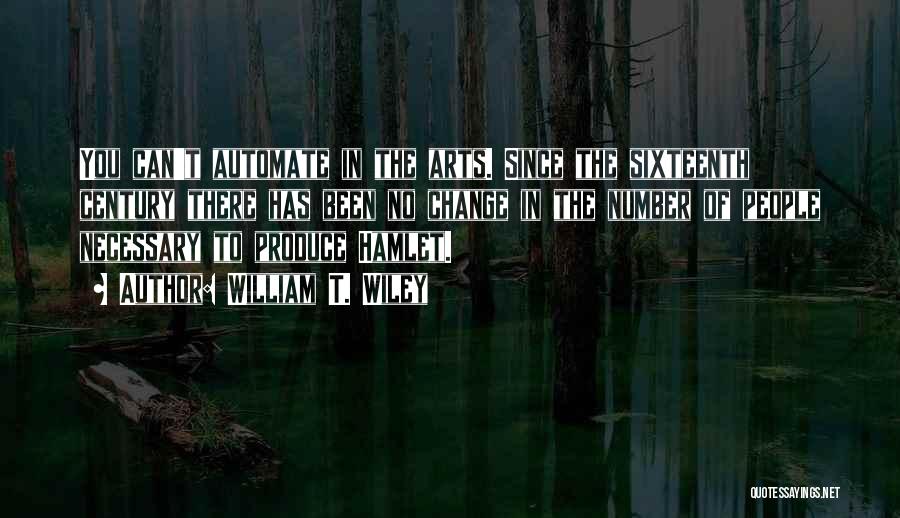
You can't automate in the arts. Since the sixteenth century there has been no change in the number of people necessary to produce Hamlet. — William T. Wiley
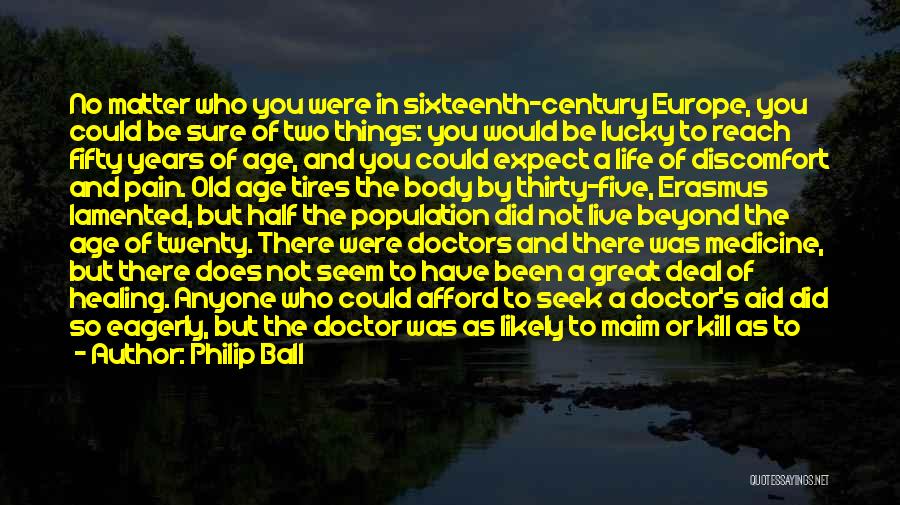
No matter who you were in sixteenth-century Europe, you could be sure of two things: you would be lucky to reach fifty years of age, and you could expect a life of discomfort and pain. Old age tires the body by thirty-five, Erasmus lamented, but half the population did not live beyond the age of twenty. There were doctors and there was medicine, but there does not seem to have been a great deal of healing. Anyone who could afford to seek a doctor's aid did so eagerly, but the doctor was as likely to maim or kill as to cure. His potions were usually noxious and sometimes fatal - but they could not have been as terrible and traumatic as the contemporary surgical methods. The surgeon and the Inquisitor differed only in their motivation: otherwise, their batteries of knives, saws, and tongs for slicing, piercing, burning, and amputating were barely distinguishable. Without any anesthetic other than strong liquor, an operation was as bad as the torments of hell. — Philip Ball

So I go out every night with a homemade sextant and sight Deneb. It's kind of silly if you think about it. I'm in my space suit on Mars and I'm navigating with sixteenth-century tools. — Andy Weir
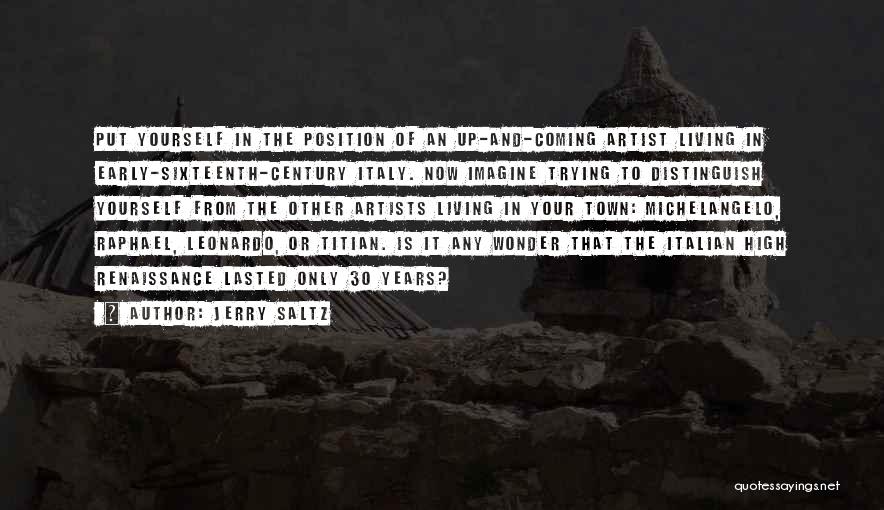
Put yourself in the position of an up-and-coming artist living in early-sixteenth-century Italy. Now imagine trying to distinguish yourself from the other artists living in your town: Michelangelo, Raphael, Leonardo, or Titian. Is it any wonder that the Italian High Renaissance lasted only 30 years? — Jerry Saltz
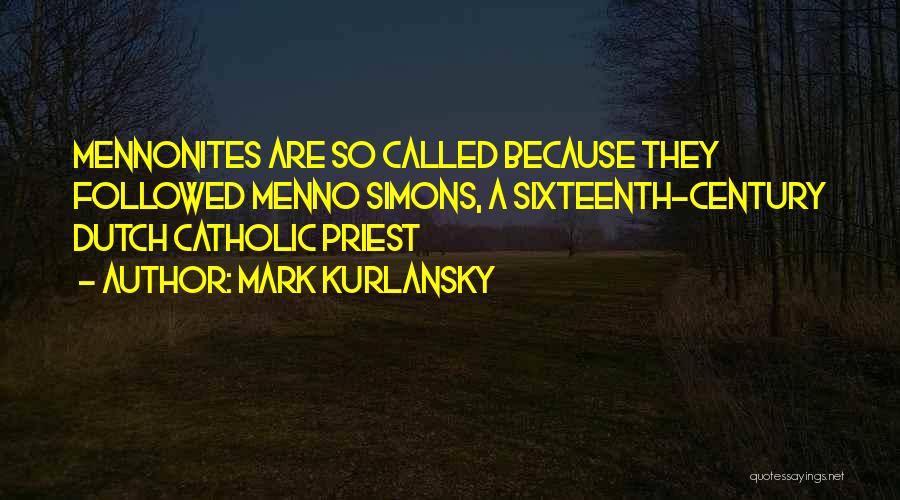
Mennonites are so called because they followed Menno Simons, a sixteenth-century Dutch Catholic priest — Mark Kurlansky
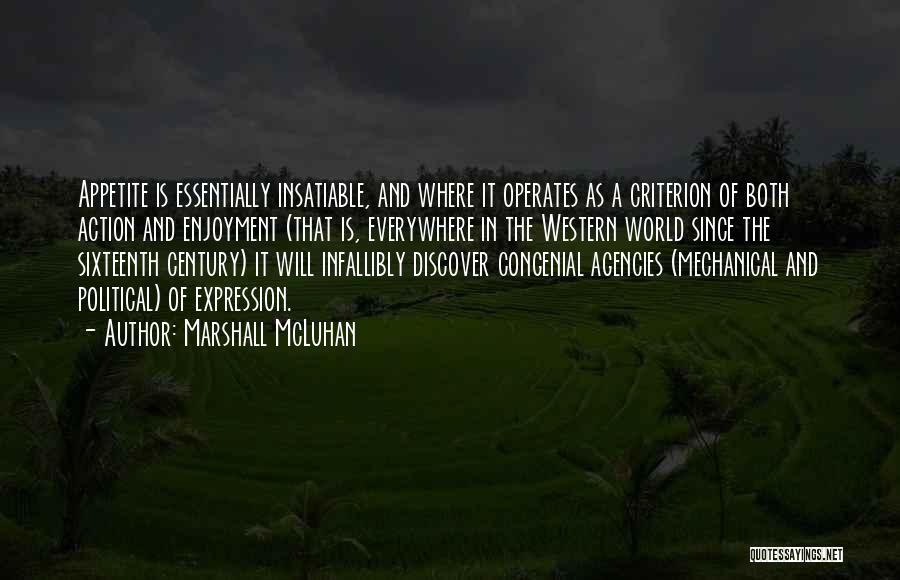
Appetite is essentially insatiable, and where it operates as a criterion of both action and enjoyment (that is, everywhere in the Western world since the sixteenth century) it will infallibly discover congenial agencies (mechanical and political) of expression. — Marshall McLuhan
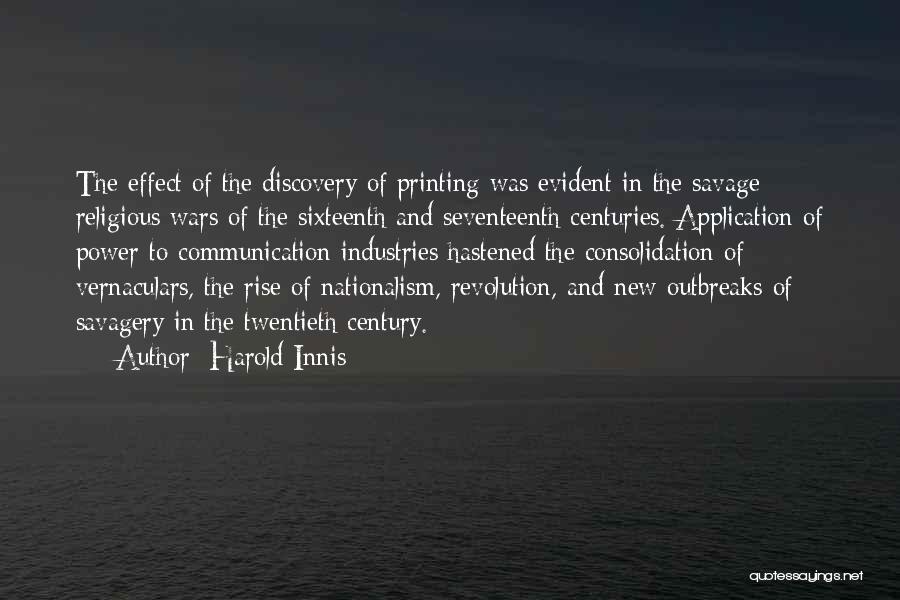
The effect of the discovery of printing was evident in the savage religious wars of the sixteenth and seventeenth centuries. Application of power to communication industries hastened the consolidation of vernaculars, the rise of nationalism, revolution, and new outbreaks of savagery in the twentieth century. — Harold Innis
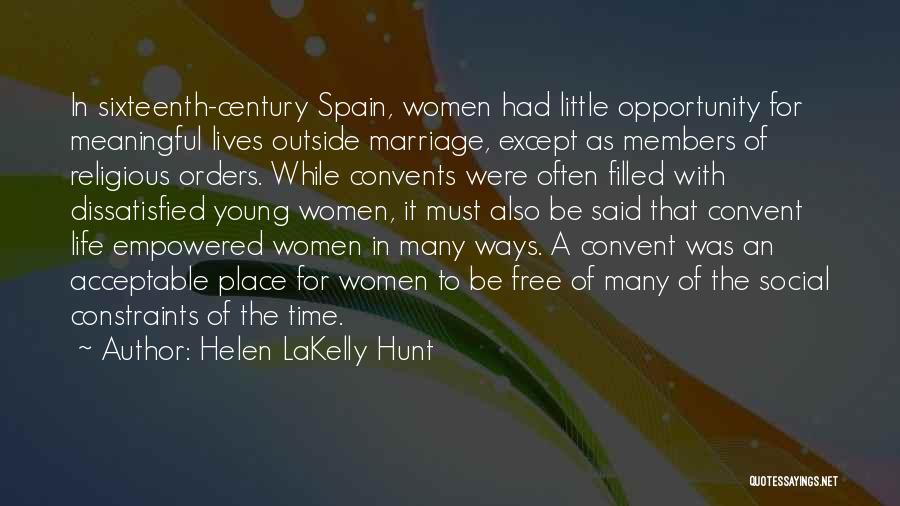
In sixteenth-century Spain, women had little opportunity for meaningful lives outside marriage, except as members of religious orders. While convents were often filled with dissatisfied young women, it must also be said that convent life empowered women in many ways. A convent was an acceptable place for women to be free of many of the social constraints of the time. — Helen LaKelly Hunt
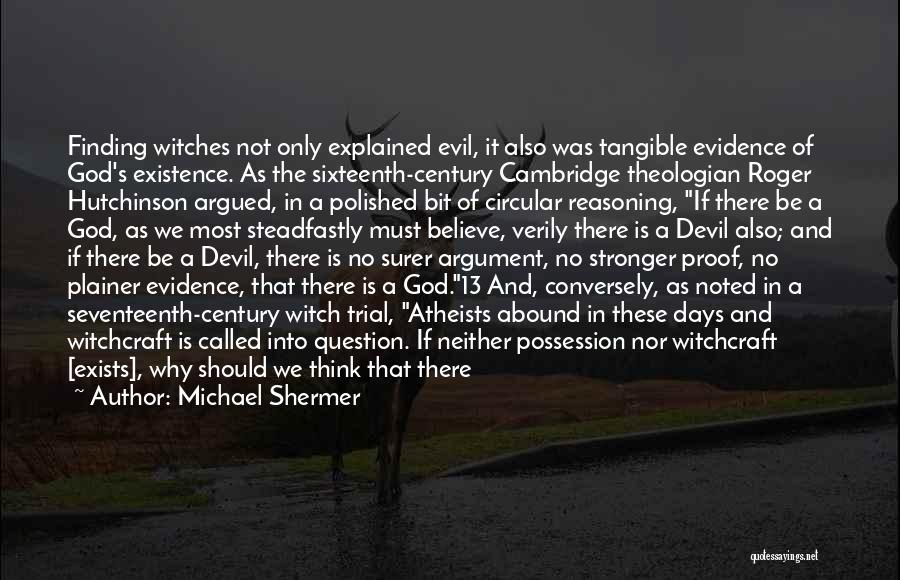
Finding witches not only explained evil, it also was tangible evidence of God's existence. As the sixteenth-century Cambridge theologian Roger Hutchinson argued, in a polished bit of circular reasoning, "If there be a God, as we most steadfastly must believe, verily there is a Devil also; and if there be a Devil, there is no surer argument, no stronger proof, no plainer evidence, that there is a God."13 And, conversely, as noted in a seventeenth-century witch trial, "Atheists abound in these days and witchcraft is called into question. If neither possession nor witchcraft [exists], why should we think that there are devils? If no devils, no God. — Michael Shermer
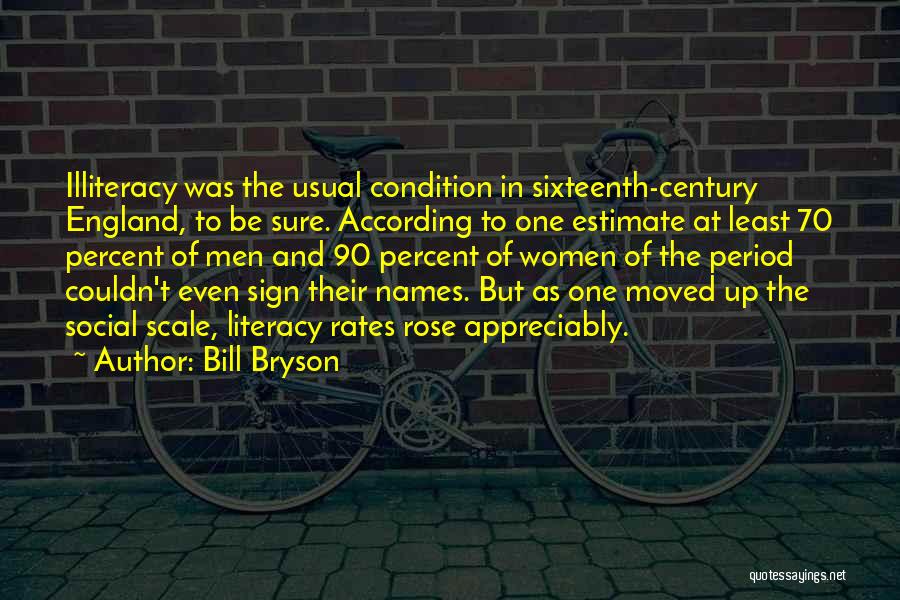
Illiteracy was the usual condition in sixteenth-century England, to be sure. According to one estimate at least 70 percent of men and 90 percent of women of the period couldn't even sign their names. But as one moved up the social scale, literacy rates rose appreciably. — Bill Bryson
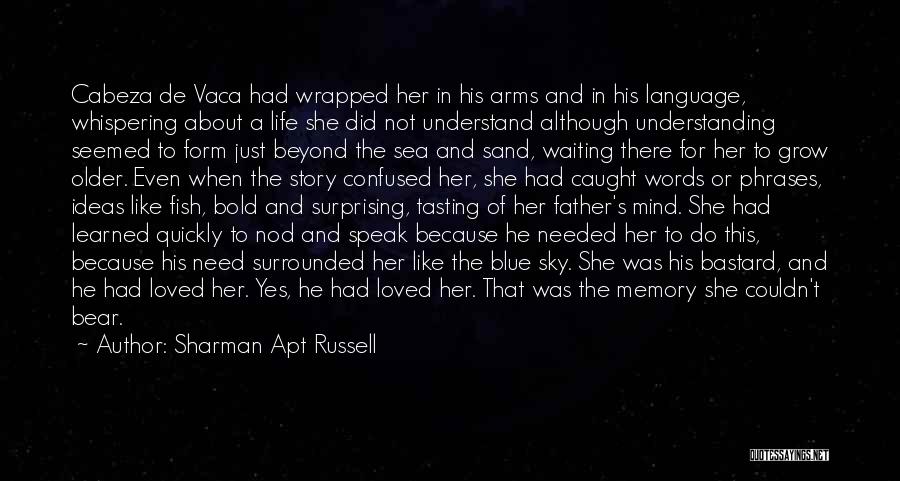
Cabeza de Vaca had wrapped her in his arms and in his language, whispering about a life she did not understand although understanding seemed to form just beyond the sea and sand, waiting there for her to grow older. Even when the story confused her, she had caught words or phrases, ideas like fish, bold and surprising, tasting of her father's mind. She had learned quickly to nod and speak because he needed her to do this, because his need surrounded her like the blue sky. She was his bastard, and he had loved her. Yes, he had loved her. That was the memory she couldn't bear. — Sharman Apt Russell

'm constantly depressed by the Mexican gang members I meet in East L.A. who essentially live their lives inside five or six blocks. They are caught in some tiny ghetto of the mind that limits them to these five blocks because, they say, "I'm Mexican. I live here." And I say, "What do you mean you live here - five blocks? Your granny, your abualita, walked two thousand miles to get here. She violated borders, moved from one language to another, moved from a sixteenth-century village to a twenty-first-century city, and you live within five blocks?" — Richard Rodriguez
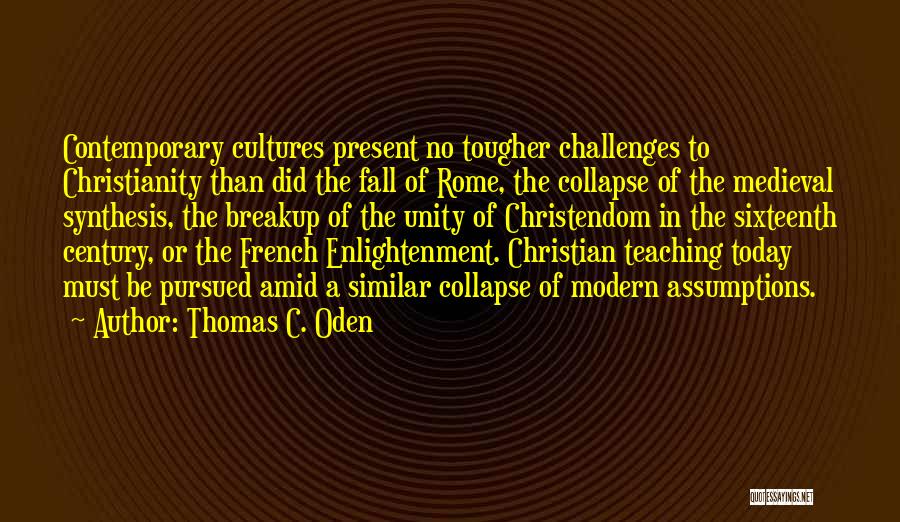
Contemporary cultures present no tougher challenges to Christianity than did the fall of Rome, the collapse of the medieval synthesis, the breakup of the unity of Christendom in the sixteenth century, or the French Enlightenment. Christian teaching today must be pursued amid a similar collapse of modern assumptions. — Thomas C. Oden

Vast flocks of fieldfares netted the sky, turning it to something strangely like a sixteenth-century sleeve sewn with pearls. — Helen Macdonald
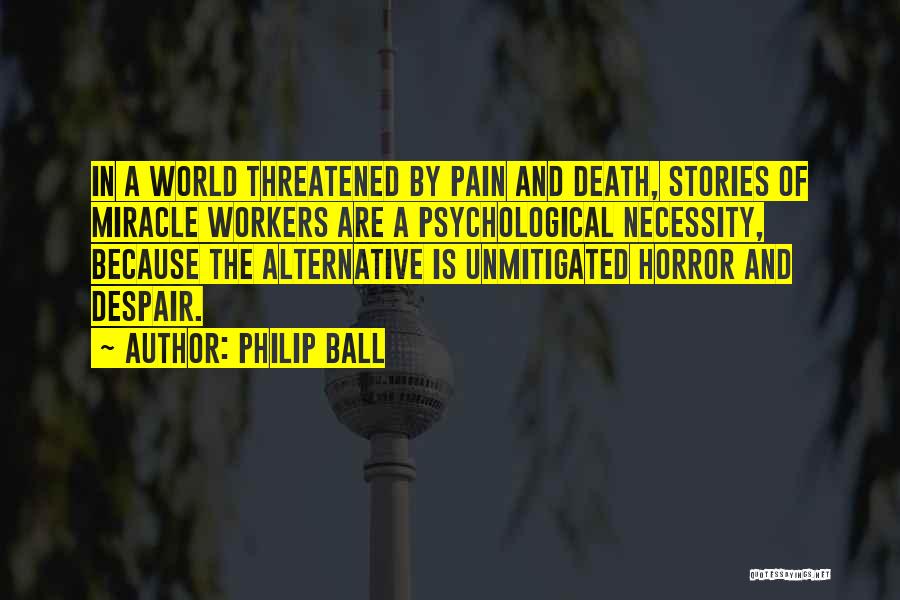
In a world threatened by pain and death, stories of miracle workers are a psychological necessity, because the alternative is unmitigated horror and despair. — Philip Ball
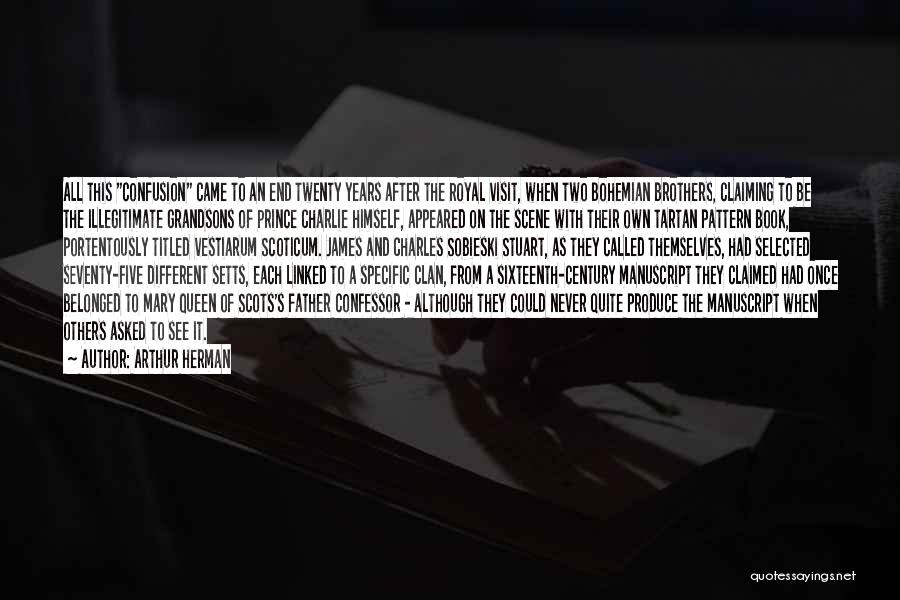
All this "confusion" came to an end twenty years after the Royal Visit, when two Bohemian brothers, claiming to be the illegitimate grandsons of Prince Charlie himself, appeared on the scene with their own tartan pattern book, portentously titled Vestiarum Scoticum. James and Charles Sobieski Stuart, as they called themselves, had selected seventy-five different setts, each linked to a specific clan, from a sixteenth-century manuscript they claimed had once belonged to Mary Queen of Scots's father confessor - although they could never quite produce the manuscript when others asked to see it. — Arthur Herman
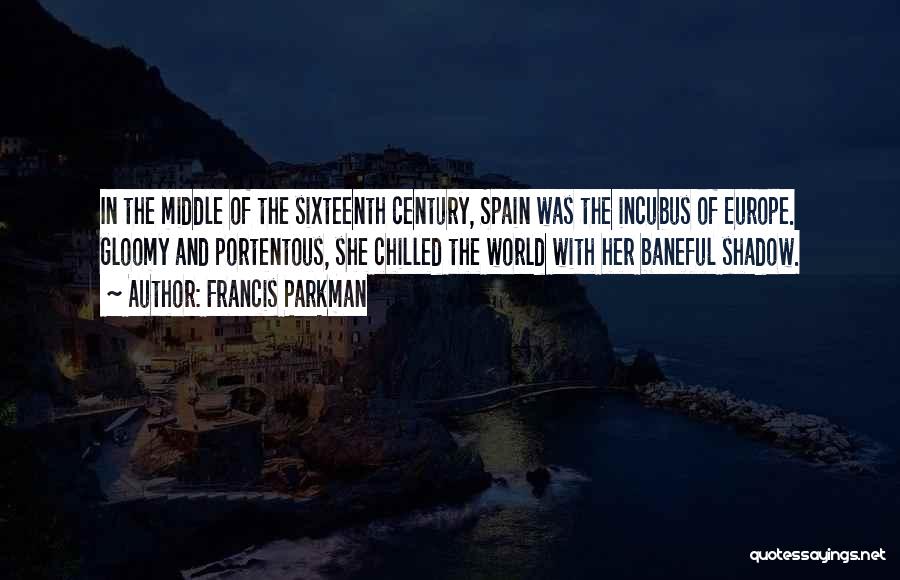
In the middle of the sixteenth century, Spain was the incubus of Europe. Gloomy and portentous, she chilled the world with her baneful shadow. — Francis Parkman
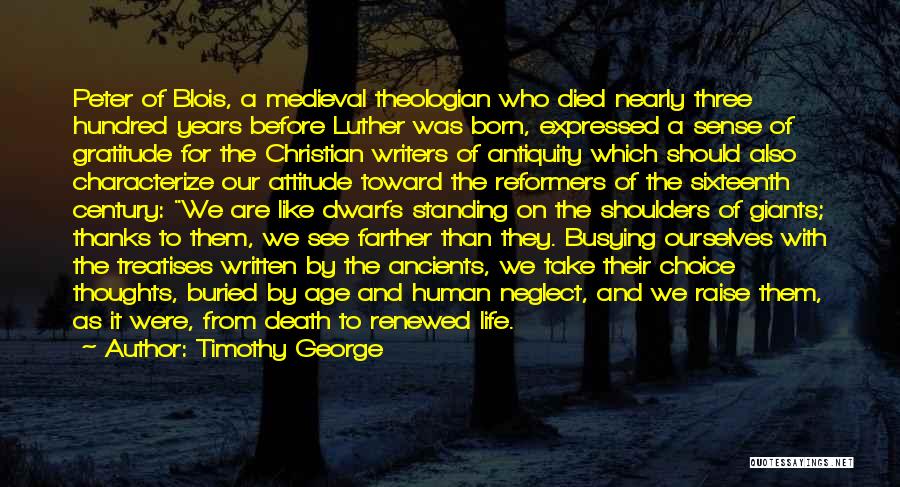
Peter of Blois, a medieval theologian who died nearly three hundred years before Luther was born, expressed a sense of gratitude for the Christian writers of antiquity which should also characterize our attitude toward the reformers of the sixteenth century: "We are like dwarfs standing on the shoulders of giants; thanks to them, we see farther than they. Busying ourselves with the treatises written by the ancients, we take their choice thoughts, buried by age and human neglect, and we raise them, as it were, from death to renewed life. — Timothy George
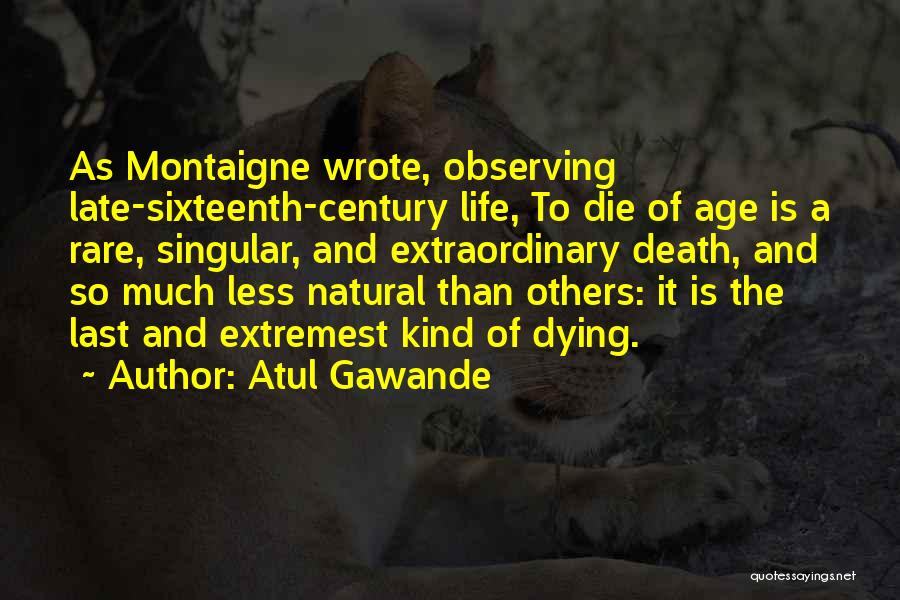
As Montaigne wrote, observing late-sixteenth-century life, To die of age is a rare, singular, and extraordinary death, and so much less natural than others: it is the last and extremest kind of dying. — Atul Gawande
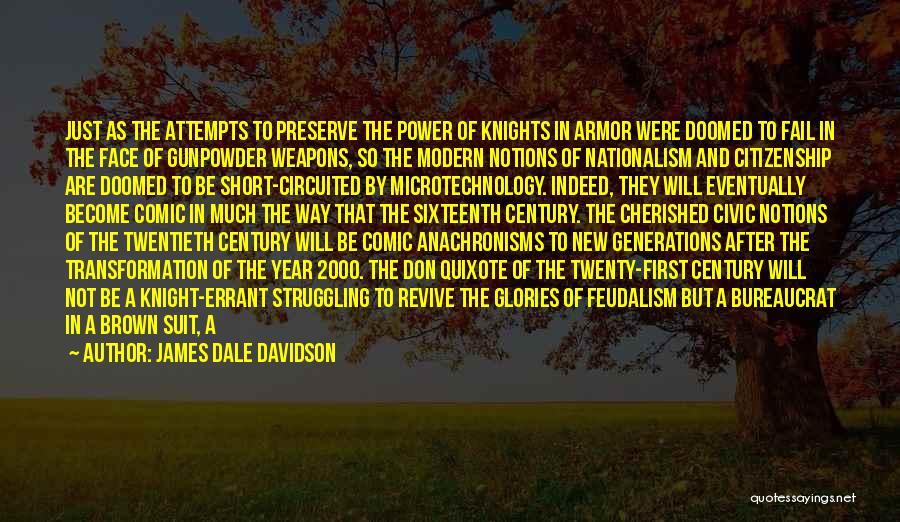
Just as the attempts to preserve the power of knights in armor were doomed to fail in the face of gunpowder weapons, so the modern notions of nationalism and citizenship are doomed to be short-circuited by microtechnology. Indeed, they will eventually become comic in much the way that the sixteenth century. The cherished civic notions of the twentieth century will be comic anachronisms to new generations after the transformation of the year 2000. The Don Quixote of the twenty-first century will not be a knight-errant struggling to revive the glories of feudalism but a bureaucrat in a brown suit, a tax collector yearning for a citizen to audit. — James Dale Davidson
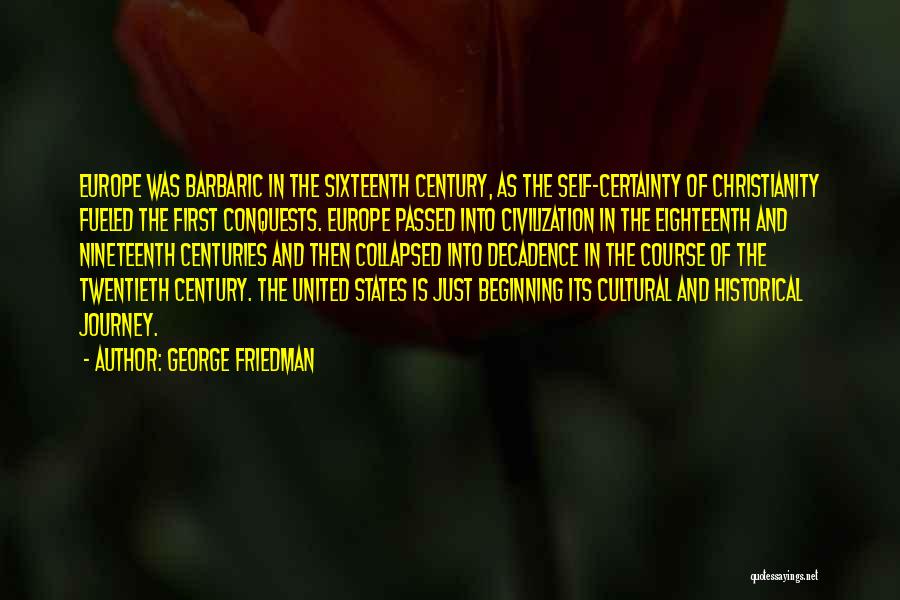
Europe was barbaric in the sixteenth century, as the self-certainty of Christianity fueled the first conquests. Europe passed into civilization in the eighteenth and nineteenth centuries and then collapsed into decadence in the course of the twentieth century. The United States is just beginning its cultural and historical journey. — George Friedman

Up until the 1950s the subject of the missionary movement was referred to as "missions" in the plural form. In fact, the term "missions" was first used in its current context by the Jesuits in the sixteenth century. But the International Missionary Council discussions in the 1950s on the missio- Dei convinced most that the mission of the Triune God was prior to any of the number of missions by Christians during the two millennia of church history. Consequently, since there was only one mission, the plural form has dropped out of familir usage and the singular form, "mission," has replaced it for the most part. Nevertheless, most churches and lay-persons hang on the plural missions. For that reason, and to make our point clear here, we will refer to it in this work from time to time while alerting believers to the coming change. — Walter C. Kaiser Jr.

though the Western tradition and particularly the Protestant and evangelical traditions have claimed to be based on the Bible and rooted in scripture, they have by and large developed long-lasting and subtle strategies for not listening to what the Bible is in fact saying. We must stop giving nineteenth-century answers to sixteenth-century questions and try to give twenty-first-century answers to first-century questions. — N. T. Wright
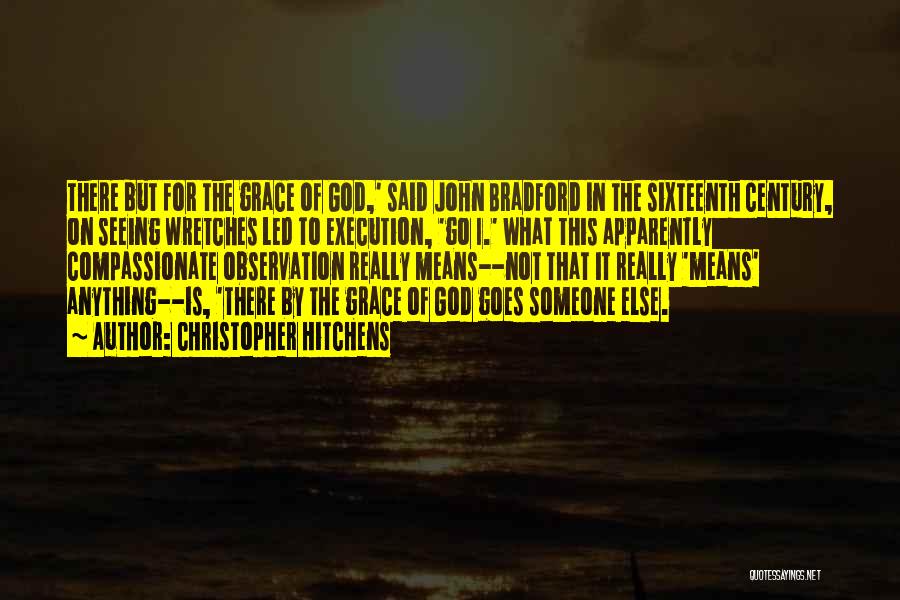
There but for the grace of God,' said John Bradford in the sixteenth century, on seeing wretches led to execution, 'go I.' What this apparently compassionate observation really means--not that it really 'means' anything--is, 'There by the grace of God goes someone else. — Christopher Hitchens
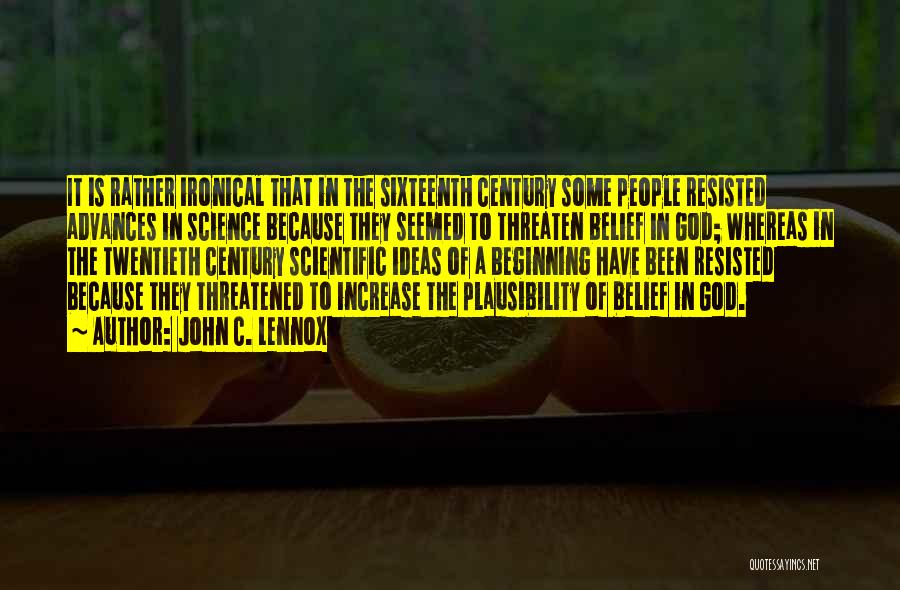
It is rather ironical that in the sixteenth century some people resisted advances in science because they seemed to threaten belief in God; whereas in the twentieth century scientific ideas of a beginning have been resisted because they threatened to increase the plausibility of belief in God. — John C. Lennox

If we say that a person has style we may wish to imply that he is unnatural, affected, self-conscious or ostentatious. In the sixteenth century 'maniera' was generally a desirable attribute of a work of art, but this positive aspect was accompanied by the realization of the negative one that correspond to what we now call, derogatively, stylization. — John Shearman
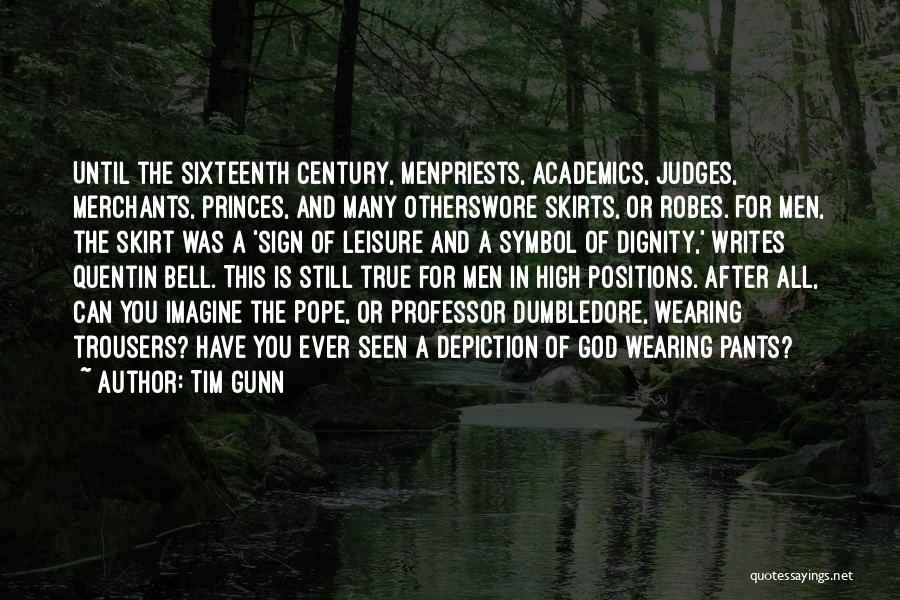
Until the sixteenth century, men
priests, academics, judges, merchants, princes, and many others
wore skirts, or robes. For men, the skirt was a 'sign of leisure and a symbol of dignity,' writes Quentin Bell. This is still true for men in high positions. After all, can you imagine the Pope, or Professor Dumbledore, wearing trousers? Have you ever seen a depiction of God wearing pants? — Tim Gunn
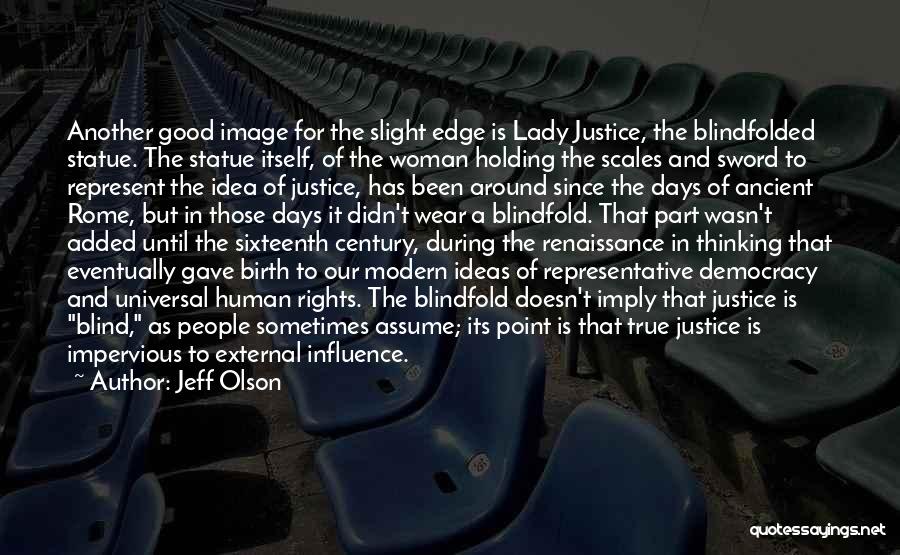
Another good image for the slight edge is Lady Justice, the blindfolded statue. The statue itself, of the woman holding the scales and sword to represent the idea of justice, has been around since the days of ancient Rome, but in those days it didn't wear a blindfold. That part wasn't added until the sixteenth century, during the renaissance in thinking that eventually gave birth to our modern ideas of representative democracy and universal human rights. The blindfold doesn't imply that justice is "blind," as people sometimes assume; its point is that true justice is impervious to external influence. — Jeff Olson
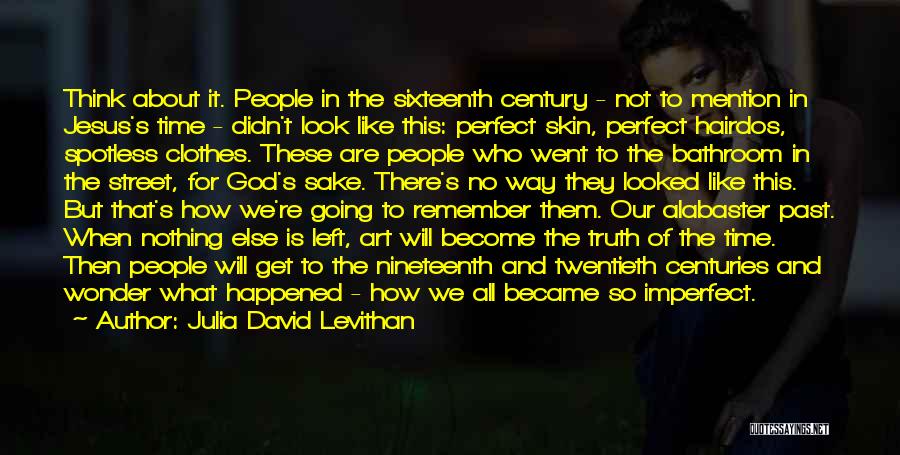
Think about it. People in the sixteenth century - not to mention in Jesus's time - didn't look like this: perfect skin, perfect hairdos, spotless clothes. These are people who went to the bathroom in the street, for God's sake. There's no way they looked like this. But that's how we're going to remember them. Our alabaster past. When nothing else is left, art will become the truth of the time. Then people will get to the nineteenth and twentieth centuries and wonder what happened - how we all became so imperfect. — Julia David Levithan
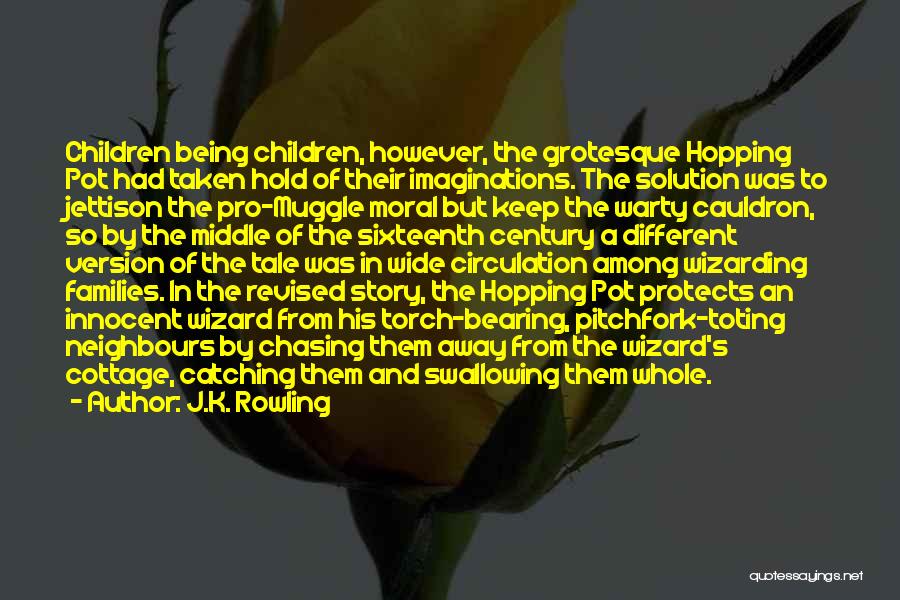
Children being children, however, the grotesque Hopping Pot had taken hold of their imaginations. The solution was to jettison the pro-Muggle moral but keep the warty cauldron, so by the middle of the sixteenth century a different version of the tale was in wide circulation among wizarding families. In the revised story, the Hopping Pot protects an innocent wizard from his torch-bearing, pitchfork-toting neighbours by chasing them away from the wizard's cottage, catching them and swallowing them whole. — J.K. Rowling
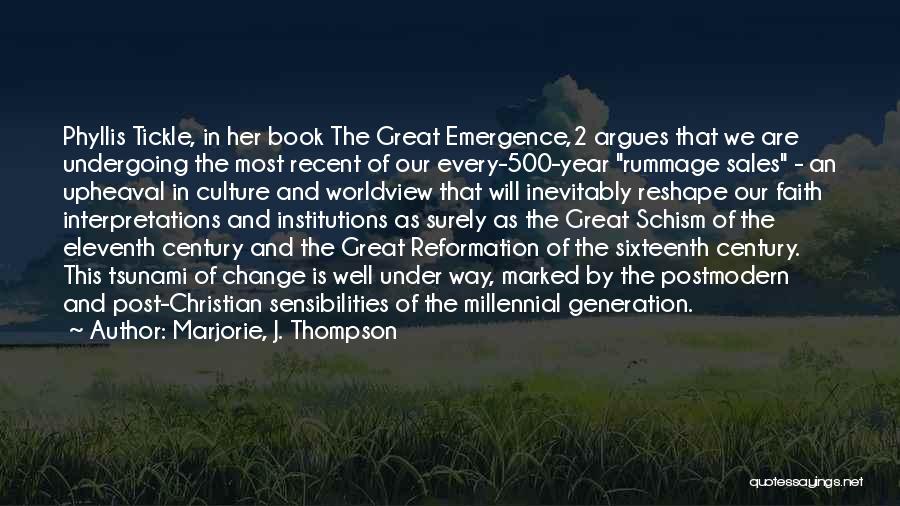
Phyllis Tickle, in her book The Great Emergence,2 argues that we are undergoing the most recent of our every-500-year "rummage sales" - an upheaval in culture and worldview that will inevitably reshape our faith interpretations and institutions as surely as the Great Schism of the eleventh century and the Great Reformation of the sixteenth century. This tsunami of change is well under way, marked by the postmodern and post-Christian sensibilities of the millennial generation. — Marjorie, J. Thompson
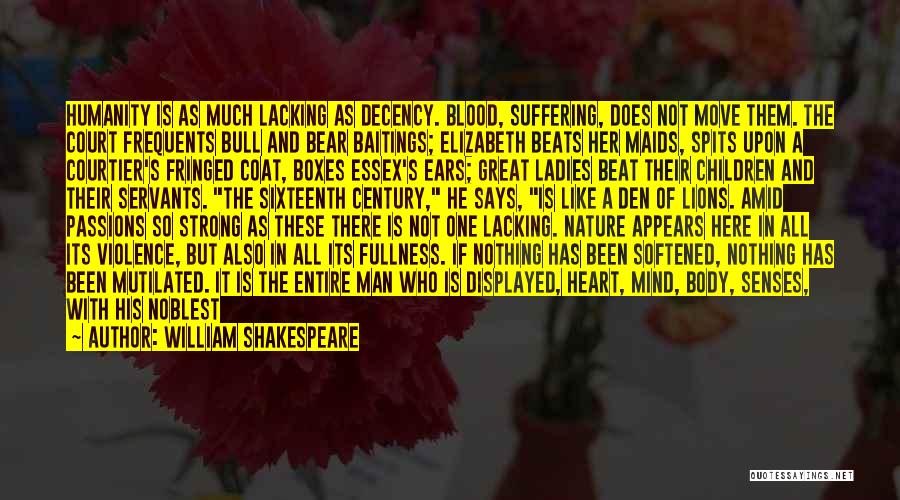
Humanity is as much lacking as decency. Blood, suffering, does not move them. The court frequents bull and bear baitings; Elizabeth beats her maids, spits upon a courtier's fringed coat, boxes Essex's ears; great ladies beat their children and their servants. "The sixteenth century," he says, "is like a den of lions. Amid passions so strong as these there is not one lacking. Nature appears here in all its violence, but also in all its fullness. If nothing has been softened, nothing has been mutilated. It is the entire man who is displayed, heart, mind, body, senses, with his noblest and finest aspirations, as with his most bestial and savage appetites, without the preponderance of any dominant passion to cast him altogether in one direction, to exalt or degrade him. He has not become rigid as he will under Puritanism. — William Shakespeare
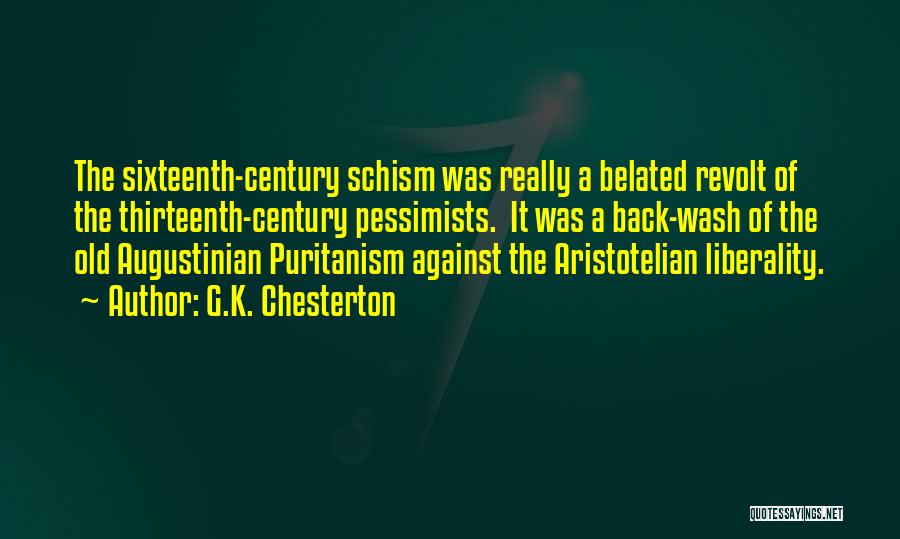
The sixteenth-century schism was really a belated revolt of the thirteenth-century pessimists. It was a back-wash of the old Augustinian Puritanism against the Aristotelian liberality. — G.K. Chesterton
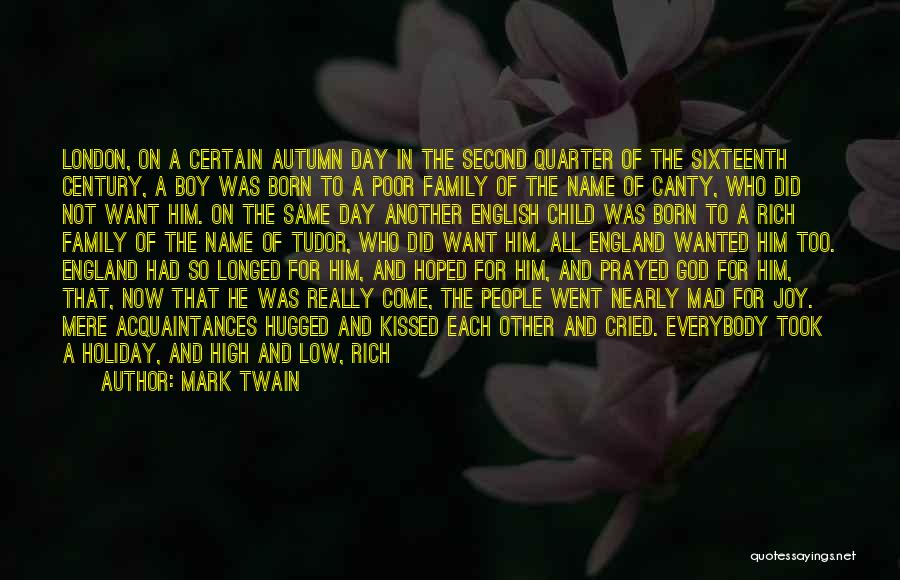
London, on a certain autumn day in the second quarter of the sixteenth century, a boy was born to a poor family of the name of Canty, who did not want him. On the same day another English child was born to a rich family of the name of Tudor, who did want him. All England wanted him too. England had so longed for him, and hoped for him, and prayed God for him, that, now that he was really come, the people went nearly mad for joy. Mere acquaintances hugged and kissed each other and cried. Everybody took a holiday, and high and low, rich — Mark Twain

The feat of superbly imitating a muscle, as Michelangelo did, or a face, as Raphael did, created neither progress nor a hierarchy in art. Because these artists of the sixteenth century imitated human forms, they were not superior to the artists of the high periods of Egyptian, Chaldean, Indochinese, Roman, and Gothic art who interpreted and stylized form but did not imitate it. — Fernand Leger





